Strong Partnership
SPECIAL EDITION – GERMANY 2023
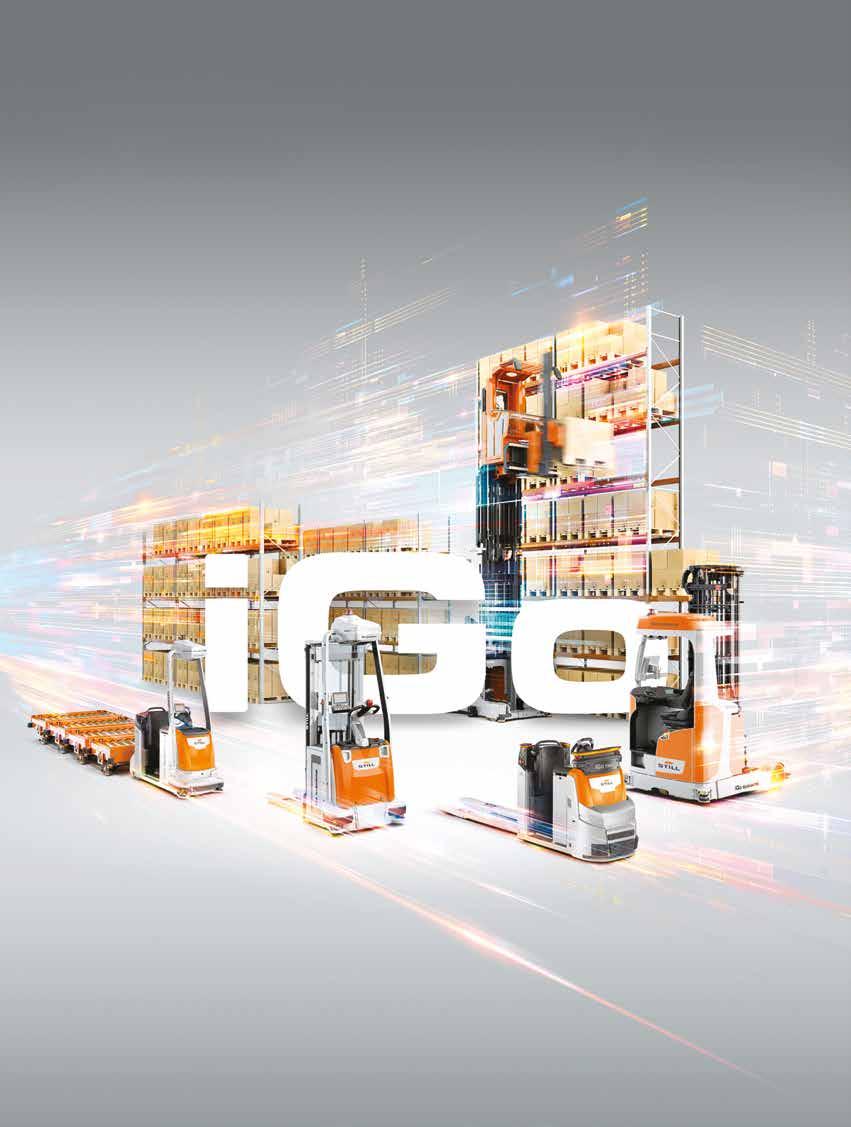
EDITOR IN CHIEF
Neda Lukić n.lukic@aim.rs
DESIGN

Slađan Radosavljević
Zoran Perović design@aim.rs
PHOTOS
Zoran Petrović
COPY EDITOR Mark Pullen
PROJECT MANAGERS
Biljana Dević b.devic@aim.rs
Mihailo Čučković m.cuckovic@aim.rs
Nataša Novković n.novkovic@aim.rs
OFFICE MANAGER
Svetlana Petrović s.petrovic@aim.rs
FINANCE Dragana Skrobonja finance@aim.rs
EXECUTIVE DIRECTOR
Maja Vidaković m.vidakovic@aim.rs
DIRECTOR Ana Novčić a.novcic@cordmagazine.com
PUBLISHER Ivan Novčić i.novcic@aim.rs
PRINTING Rotografika d.o.o. Segedinski put 72, Subotica GERMANY 2023 Published by:
cordmagazine.com 03
Mateje
PAK
Phone: +(381
All rights reserved alliance international media 2023 The views expressed in this publication are those of the presenter; they do not necessary reflect the view of publications published by alliance international media THIS PUBLICATION IS FREE OF CHARGE Contents Germany 2023 05 COMMENT Moving Mountains 06 H.E. Anke Konrad Ambassador of Germany to Serbia Berlin and Belgrade Remain Close 10 Milan Grujić President of the German-Serbian Chamber of Commerce Soaring Bilateral Trade Attracts German Investors 14 Marko Čadež President of the Chamber of Commerce & Industry of Serbia Many Reasons for Optimism 17 Medeja Lončar Siemens CEO for Slovenia, Croatia and Serbia; Vice President of the Board of Directors of the GermanSerbian Chamber of Commerce (AHK Serbien) Acting Responsibly Today is Our Legacy for Tomorrow 18 Alexander Markus Executive Member of the Board of the German-Serbian Chamberof Commerce Serbia is an Appealing, Yet Risky Market 21 Aleksandar Goračinov Project director, SME HUB Encouraging Domestic Producers to Grow and Develop 22 Matthias Tupy Brose Maintaining Momentum is the Challenge 24 Miloš Manić Leoni vice president, general manager Leoni Serbia Ready for the Company to Scale New Heights 26
Schenker Switching Customers to the Fast Lane 27 Dragan Čigoja Lidl Srbija CEO Proud of the First Five Years 28 Dr Christoph Veldhues Director of the Goethe-Institut Belgrade Dialogue is Key 31 Julia Brückner Regional representative of Help-Hilfe zur Selbsthilfe Long-term Collaborative Partnerships 32 Miloš Milovanović Managing Director, Ekotehnika Viljuškari A Leader Remains a Leader 34 Tanja Bogdanov Managing Partner and Founder of Vekol DMC No Compromise on Quality
Darko Bjelić EMBA, CEO, 8. mart Europe is Conquered With Quality 36 Team KROMBERG & SCHUBERT Srbija We Construct, Create and Connect 37 Nemanja Ćirić Business Development Manager at GP Gradjevinar A Full 34 Years at the Top 38 Yunex Traffic Sustainable Mobility Experts 39 Nenad Đorđević Managing director, Hoberg & Driesch Southeast Europe Combining Tradition and Innovation 40 Sanjin Laganin Managing Director, Dr. Oetker Creating a Taste of Home 42 dm drogerie markt Additional Salary Instalment for Staff
Managing director, Head of SEE at Merck Group A Company Where Families Thrive
Economy Can Germany’s Economy Avoid a China Shock?
Cultural Relations Remembering Historical and Cultural Ties
Regional Business Forum The Western Balkans in 2030 and Beyond
50th Anniversary of the Brioni Meeting of Tito and Brandt Gentlemen’s Agreement 56 Special Olympics World Games Berlin 2023 Competing in Unity
alliance international media Prote
52, 11111 Belgrade 17,
125806, Serbia
11) 2450 508 E-mail: office@aim.rs; office@cordmagazine.com www.aim.rs; www.cordmagazine.com ISSN: 2560-4465
DB
35
43 Ina Bulat
44
48
50
54

04 GERMANY 2023
Photo Freepik
Moving Mountains
Bilateral relations between Serbia and Germany are marked by a strong partnership, particularly in the economic sphere. Even geopolitical crises, regional conflicts or high inflation and economic slowdowns in key export markets haven’t been able to significantly disrupt the achieving of results
Germany provides Serbia with considerable support in introducing crucial political and economic reforms aimed at fostering democratic change, strengthening the rule of law and facilitating Serbia’s progress on its EU accession journey.
Development cooperation between Germany and Serbia is geared primarily towards assisting Serbia in its EU accession process. Key areas of focus include green initiatives, renewable energy development, energy efficiency enhancement and sustainable economic transformation. Notably, Germany has entered into a strategic climate partnership with Serbia and the Western Balkan region, demonstrating its commitment to environmental sustainability across the region.
Additional areas encompass vocational education and training, assistance to

Nevertheless, these differences have not hindered the overall relationship, which remains robust.
From an economic standpoint, Germany has emerged as a key partner for Serbia. The presence in Serbia of over 900 companies with German capital has been instrumental in driving economic growth and job creation. The German-Serbian Chamber of Commerce has played a crucial role in facilitating this economic cooperation. And indeed, judging by numbers, it is a success story. The commercial goods exchange between Germany and Serbia has experienced a remarkable surge, with an almost 18 per cent increase in the first four months of 2023 alone. This follows a substantial nominal increase of 26.3% in the trade exchange between the two countries in 2022. These positive results can be attributed to a growing number of German companies either establishing or expanding their manufacturing operations in Serbia. These endeavours primarily involve the production of components for the German industrial sector, further solidifying bilateral economic ties.
the Serbian private sector and the promotion of good governance. Germany has been a pivotal contributor in these areas since 2000, providing approximately 2.3 billion euros, fortifying its existing position as the largest bilateral donor.
By all measures, this cooperation is most fruitful when it comes to economic cooperation, while the two countries have differing positions on Kosovo independence and some issues related to foreign policy and views on the Ukraine conflict.
These achievements suggest that these two partner nations could move mountains and may further excel in their current relations.
In conclusion, while Serbia and Germany have enjoyed considerable economic success and maintain a strong partnership, it is essential to acknowledge areas requiring improvement and challenges that lie ahead. The continued growth of economic ties, coupled with efforts to mitigate risks and enhance market stability, will be crucial in ensuring the continued success of these bilateral relations.
cordmagazine.com 05 COMMENT
Accomplishments to date indicate that these two partner countries have the potential to achieve even greater success and strengthen their existing relationship
Berlin and Belgrade Remain Close
With the reform of the German citizenship law, the country’s federal government intends to create a modern immigration law that reflects the diversity of Germany as a society and modern country ~ Anke Konrad
 By Ljubica Gojgić
By Ljubica Gojgić
06 GERMANY 2023 INTERVIEW | H.E. ANKE KONRAD AMBASSADOR OF GERMANY TO SERBIA
The Berlin process, as well as the Franco-German proposal for the final normalisation of relations between Belgrade and Pristina, should be interpreted as Germany’s contribution to accelerating the process that ought to lead to Serbia’s EU accession, says German Ambassador Anke Konrad in this interview for CorD Magazine. She adds that economic cooperation between the two countries remains at a high level, as does interest in entering Serbia among German companies. “Of course, the business environment needs to be fair and lawful,” insists Ambassador Konrad, before noting that “the most recent business survey of the German Chamber of Commerce in Serbia, conducted in 2023, has testified that factors like the availability of qualified workers, the fight against corruption, political and social stability, as well as the transparency of public tenders, have an important impact on the productivity of existing investments, as well as decisions on future ones. It is therefore crucial to continue working to ensure a level playing field for all players in the business sphere.”
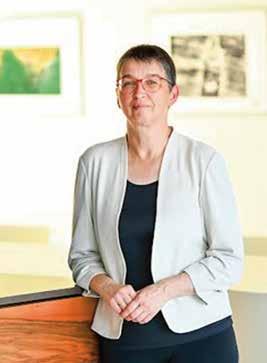
Your Excellency, when you arrived in Serbia a year ago, your initial message was that Serbia is an important partner to Germany. Has anything changed in the meantime when it comes to relations between Berlin and Belgrade? — Relations between Berlin and Belgrade are close and will remain so. Through my first year in Serbia, we have continued our cooperation on a broad range of bilateral issues, as well as on global challenges like, for instance, climate change. The Berlin Process, created in 2014, has taken a big step forward with the conclusion of four mobility agreements that will contribute to furthering cooperation and exchange among all Western Balkan countries mutually, as well as with their European partners. We look forward to the next summit in Tirana, on 16th October, which should open up new avenues for this cooperation.
With the Franco-German proposal, Berlin and Paris have provided an important contribution to agreements reached in Brussels and Ohrid at the beginning of this year to further the normalisation of relations between Belgrade and Pristina. We also see our engagement in all these areas as our contribution to advancing Serbia on its journey to membership in the European Union and we will continue our support.
German media recently received a letter in which several Western politicians, including Michael Roth, Chair of the Bundestag Foreign
EU
Our position remains clear: the future of the Western Balkan countries lies in the European Union
INVESTMENTS
interest in investing in Serbia remains high among German companies, including investments in the expansion of existing companies or the diversification of their portfolio
ENLARGEMENT
The enlargement of the EU remains our goal. This includes Serbia, as well as all other countries of the Western Balkans
Affairs Committee and a member of the ruling SPD, allegedly call on the EU and the U.S. to distance themselves from Serbia and support the Kosovo government over current events unfolding in the north of the province. The letter includes a call to “learn from our past and ensure that we do not pursue Belgrade-centric policies in the Balkans”. Is this the personal position of Mr Roth or is he actually announcing a change to German foreign policy?
— The role of the German Foreign Affairs Committee is to monitor and evaluate our foreign policy. The committee may provide the government with advice and recommendations on foreign policy, stemming from discussions and analyses that take place there. The letter therefore represents an impetus for public debate and does not signify a change in German foreign policy. Our position remains clear: the future of the Western Balkan countries lies in the European Union. To this end, Serbia and Kosovo will have to take important steps toward one another. They confirmed their willingness to do so six months ago in Ohrid – the task for both sides now is to implement those commitments.
In your statements given to media here in Serbia, you refuted the claim that Germany “supports only one side” in Kosovo. To which side do you attribute responsibility for the latest escalation of problems in the north of Kosovo?
— We have a situation between Serbia and Kosovo that is not sustainable and that has been de-
cordmagazine.com 07
priving both countries, and the people who live there, of many development prospects for many years. The basic agreement, namely the Ohrid Agreement, with which both sides agreed earlier this year to further normalise their relations, is therefore an important and responsible step that we support and which must now be implemented by both sides without additional conditions. It is now the responsibility of both sides to conduct and continue the dialogue on the implementation of Ohrid seriously and constructively, and to take concrete steps. We should always bear in mind that the normalisation of these relations is, first and foremost, about the future of the people of the two countries, as well as the future of the entire Western Balkan region.
Late June saw German company Hansgrohe open its new plant in Valjevo, announcing work for as many as 100 workers. Does this serve to confirm that German investors are still interested in investing in Serbia?
— Yes, interest in investing in Serbia remains high among German companies, including investments in the expansion of existing companies or the diversification of their portfolio. I would like to emphasise that these investments
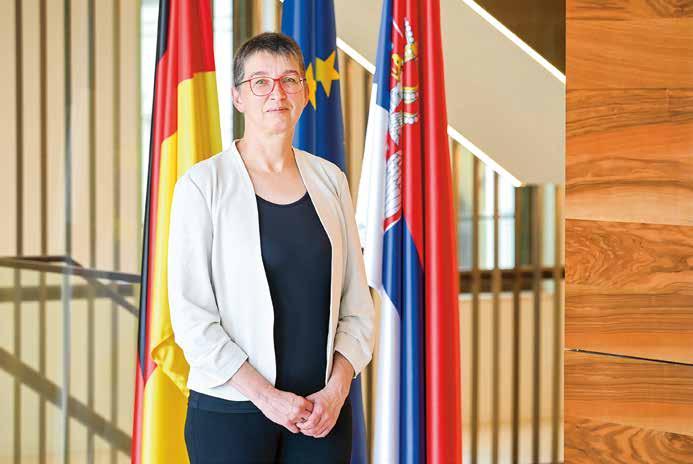
lead not only to the creation of additional workplaces, but also highly qualified ones, creating new prospects for specialists, also in the IT sector. By setting new standards with regard to working conditions, dual education, environmental protection or energy consumption, German companies contribute directly to Serbia’s EU accession path.
Of course, the business environment needs to be fair and just. The most recent business survey of the German Chamber of Commerce in Serbia, conducted in 2023, testified that factors like the availability of qualified workers, the fight against corruption, political and social stability, as well as the transparency of public tenders, have an important impact on the productivity of existing investments, as well as decisions on future ones.
08 GERMANY 2023
The Ohrid Agreement, is an important and responsible step towards normalisation that we support and which must now be implemented by both sides without additional conditions
It is therefore crucial to continue working to ensure a level playing field for all players in the business sphere.
Germany is viewed from within Serbia as an EU member state that strongly supports expansion of the Union to encompass the countries of the Western Balkans. Given the current pace at which this process is unfolding – not only in the case of Serbia, but also with Montenegro and particularly North Macedonia – does any basis exist to believe that expansion is a realistic option in the near future and on what does that depend?
— The enlargement of the EU remains our goal. This includes Serbia, as well as all other countries of the Western Balkans. That’s why we continue to support Serbia’s efforts on this challenging path. And that’s why we are simultaneously also working on the future of the EU.
Will the German public support the government’s initiative to significantly ease the procedure for obtaining citizenship, including the option of dual citizenship, which is a topic of interest to a large number of German citizens with Serbian roots who do not yet have a permanent status solution?

— With the reform of the German citizenship law, the federal government intends to create a modern immigration law that reflects the diversity of our society and modern country. The draft law envisages that, in the future, foreigners who are able to make a living for themselves will be able to apply for naturalisation after only five years resident in Germany. Moreover, they will not have to give up their orig-
inal citizenship. Of course, this would also benefit Serbian citizens who have lived in Germany for a very long time and who are well integrated. The draft law will have to pass the German Bundestag, and therefore might be subject to change following discussions between the members of the parliament. It is not yet clear when the new law might enter into force.
cordmagazine.com 09
By setting new standards with regard to working conditions, dual education, environmental protection or energy consumption, German companies contribute directly to Serbia’s EU accession path
Soaring Bilateral Trade Attracts German Investors
The forecast for the bilateral trade exchange between Serbia and Germany until year’s end is exceptionally optimistic, primarily driven by two consecutive years of double-digit growth in Serbian exports to Germany. These positive trends contribute to Serbia’s continued appeal to German investors
The majority of economic experts assume that economic growth in Serbia will total around two per cent in 2023, while the National Bank of Serbia (NBS) anticipates a growth rate of up to three per cent. Real GDP growth could experience a resurgence from 2024, possibly reaching four per cent. This is attributed primarily to FDI inflows, followed by an increased export volume, given that many manufacturing companies produce components in Serbia for their own industrial production, or products for the markets of their home countries. According to NBS data, inflows of foreign capital during the first four months of 2023 totalled approximately 1.3 billion euros, representing a surge of nearly 70 per cent compared to the same period of 2022. That is a major growth driver for Serbian export.
“As a consequence of this, when we observe current facts and figures, the forecast for the foreign trade exchange between Serbia and Germany until the end of this year is exceptionally optimistic,” says Milan Grujić, president of the German-Serbian Chamber of Commerce. “Due to the double-digit growth of Serbian exports to Germany over two consecutive years, the trade exchange between Germany and Serbia achieved a balance in 2022 for the first time after many years. Imports and exports reached a combined total value of eight billion euros last year. These

10 GERMANY 2023
INTERVIEW | MILAN GRUJIĆ PRESIDENT OF THE GERMAN-SERBIAN CHAMBER OF COMMERCE
Serbia’s digital transformation initiatives are all geared towards nurturing a digital economy-friendly environment
are all very good figures, and one of the reasons Serbia remains an appealing destination for German investors.”
How have German companies that are either investing for the first time or reinvesting in Serbia responded to the forecasts of a slow recovery for the global economy?
— The ups and downs of the economy are always challenging. This is no different today. In Germany, many experts see serious signs of recession and this will have an influence on demand.
However, German and Serbian companies that are members of the German-Serbian Chamber of Commerce have positively assessed the business climate in Serbia and expressed favourable expectations within their own operations.
Despite the difficult economic situation in Germany, 87 per cent of surveyed companies would invest in Serbia again. We see this not only in the results of our survey, but also in reality. For example, at the beginning of 2023, German automotive parts supplier Continental expanded its investments by inaugurating a ‘mega factory’ near Novi Sad, producing state-of-the-art automotive displays. In April, Bizerba opened its new production facility in Valjevo, followed by Hansgrohe on a neighbouring plot in Valjevo in June. We will soon witness the laying of the groundwork for another German investment by another automotive supplier in Čačak. On another hand, however, we must understand that there is already a limiting factor to this process, in terms of the lack of qualified workers in many Serbian regions.
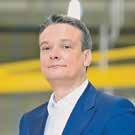
Some economists believe that a decline in inflation, coupled with accelerated wage growth and a robust labour market, will aid the German economy in achieving modest growth throughout the rest of this year. However, this shift does not fundamentally alter Germany’s economic prospects, and any potential downturn in economic activity within the broader region, including Serbia, is likely to be modest.
Have rising inflation and slowed growth impacted the workforce dynamics of your members to date?
— The annual inflation rate, as measured by the consumer price index, is displaying signs of deceleration. According to the Statistical Office of the
RESILIENCE
The Serbian economy demonstrates resilience and continues to grow despite the global crisis
REGION
It is essential to extend the Open Balkan framework to encompass all markets of the Western Balkans
SUSTAINABILITY
We assist Serbian firms that engage with Germany in adapting to new regulations that lead to sustainable business practices
Republic of Serbia, it stood at 15.1% in April of this year and had fallen to 13.7% by June. Conversely, the gradual slowdown of consumer inflation in Germany (HICP) has led to a situation in which inflation stood at 7.6% in April 2023, compared to October 2022, when it was as high as 11.6%.
German companies have created more than 80,000 new jobs in Serbia. Based on the findings of this year’s AHK economic survey, 44 per cent of surveyed companies are planning to increase their workforce, while only three per cent believe that their number of employees will decrease. Furthermore, German companies hold a positive view of factors related to the Serbian labour market: they are satisfied with the qualifications, productivity and readiness of the workforce.
Our projection is that, by 2024, we will achieve a trade exchange worth 10 billion euros and have 100,000 individuals from diverse professional backgrounds employed by German companies in Serbia.
What are the most crucial issues for your chamber today when it comes to improving the business climate?
— The challenges that plagued the planet at the turn of the millennium are still very relevant, with new ones having also arisen, all while the time to react becomes increasingly limited. The year 2030 is fast approaching, and ambitious environmental protection goals can only be achieved through collaboration between the public, private and nonprofit sectors. Given these tumultuous times and the challenges confronting the global economy, it is of paramount importance that all companies in Serbia, including SMEs, base their operations on principles of sustainability and ‘green’ objectives. However, sustainable development must be a task
11 cordmagazine.com
Regardless of ongoing German investments in Serbia, the lack of qualified workers in many Serbian regions is a notable limiting factor
for everyone: governments, societies and businesses, but also professions, consumers and all citizens. There is no time to delay on this path, and for us, at the Chamber, it is a task for today.
Areas where untapped potential for improvement remains include education and the availability of skilled labour. Retaining talented personnel is of vital importance to business needs and demands, as is their adequate education in line with market requirements and trends. Serbia stands as the sole country in the region to have adopted a law on dual education, and the state continues to work tirelessly to promote and bolster the dual education system in order to tailor education profiles to
the needs of the economy. In July of this year, the German-Serbian Chamber of Commerce signed a Memorandum of Cooperation with the Office for Dual Education and the National Qualifications Framework, underscoring the Chamber’s clear commitment to supporting and promoting the national dual education implementation programme, which is indeed one of the Chamber’s strategic goals.
Serbia is one of the countries where the implementation of the German Due Diligence Act is being tested. How is AHK involved in this process and what are your expectations?
— A new German law on supply chains came into effect on 1st January 2023 and requires all companies with over 3,000 employees to submit annual reports to the government on the status of fundamental human rights and compliance with environmental provisions in their supply chains. Starting from 2024, this obligation will extend to all companies with over 1,000 employees.
The German-Serbian Chamber of Commerce, through the “Supply Chains in Serbia” and “Green Economy and Sustainable Development” committees, is assisting Serbian firms that engage with Germany in adapting to these new regulations, and is thus supporting them on
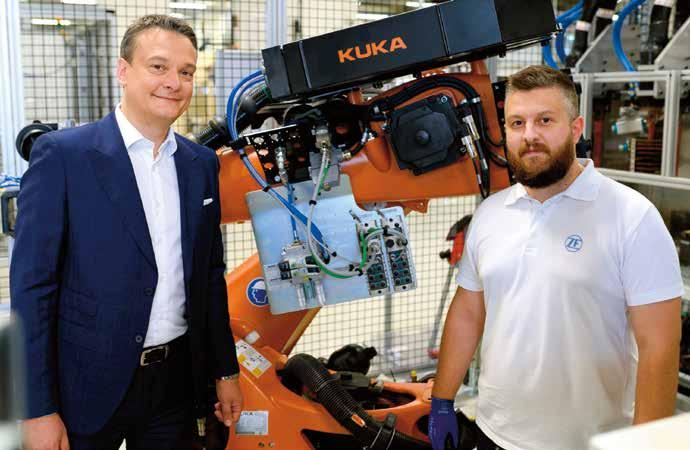
12 GERMANY 2023 12
Despite Germany’s economic challenges, 87% of surveyed companies would reinvest in Serbia
Serbia continues to work tirelessly to promote and bolster the dual education system in order to tailor education profiles to the needs of the economy
their journey towards sustainable business practices. The German-Serbian Chamber of Commerce is already implementing the Young Energy Europe project, which enables young professionals to enhance their expertise in energy efficiency. The Green Hydrogen Business Desk was launched this year as an incentive for sustainable projects and carbon management training at companies.
How do German companies view the development of the Open Balkan initiative, and how do they assess the effects of reducing trade barriers and relaxing regulations governing the free movement of labour?

– The Open Balkan initiative represents an excellent opportunity to liberalise capital flows, as doing so would make the region more attractive for establishing new investments and expanding current ones. However, in order for this initiative to be even more successful, it is essential to extend the Open Balkan framework to encompass all markets of the Western Balkans. German companies planning to establish a presence in Serbia are not only considering infrastructure and local conditions, but also the potential for broader regional engagement, thanks to harmonised standards that apply across the entire region. The development of a common economic market will therefore hold significance primarily for the economy and business, serving as a possibility to attract even more foreign investors.
How would you evaluate the current legislative initiatives that are aimed at enhancing the digital services provided for businesses by the government?
— The concept of digital transformation has been recognised as a pivotal global trend of the world economy — a process that transforms society and the economy as a whole. It is also an essential prerequisite for the survival, growth and development of companies on both domestic and global markets. Throughout the pandemic, digital transformation proved critical to company survival and accelerated the evolution of the European economy. Strategic development programmes for the start-up ecosystem, the legal-regulatory framework, digital infrastructure and public dialogue on digital transformation in Serbia are all aimed at creating a business environment that serves the digital economy.
Given that digital transformation is an ongoing narrative, a story that never truly ends, continuous efforts will be exerted in the direction of analysis and initiatives aimed at enhancing the current business model.

cordmagazine.com
Many Reasons for Optimism
In 2023 and 2024, room has opened up to significantly improve economic cooperation with Germany and break existing records. The Chamber of Commerce & Industry of Serbia provides full support to companies in achieving these objectives
Despite falling international demand and the slowdown in economic activity globally, Germany has remained Serbia’s top foreign trade partner, while the mutual exchange of goods and services continued to grow in the first half of this year, though admittedly somewhat more slowly than over the preceding two years. The exchange of goods increased by 15.6% in the first six months, with the exchange of services up 17.9%, with the total value of mutual trade thus reaching almost 5.5 billion euros.
“That trend has continued in the second half of the year, and we will this year exceed 10 billion euros for the first time, thereby surpassing the record of 9.99 billion euros in the exchange of goods and services that we achieved last year,” says Marko Čadež, president of the Chamber of Commerce & Industry of Serbia. This year’s combined balance in the trade of goods and services could “leap” to as much as 11.5 billion euros, with the exchange of goods exceeding 9.5 billion euros and the exchange of services over two billion euros,” explains our interlocutor.
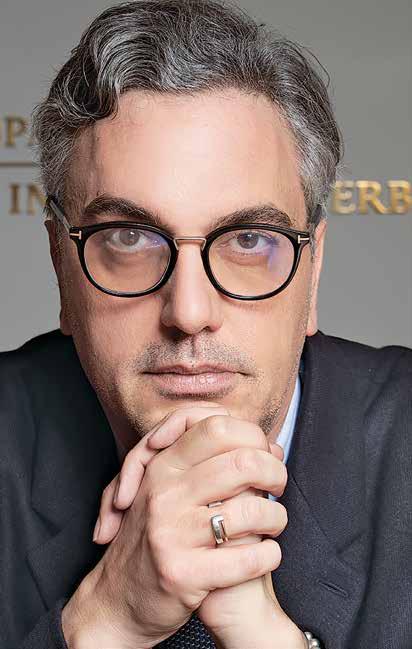
What are the prospects of Serbian exports to the German market continuing to increase under the current circumstances?
— Goods exports grew significantly faster than imports in the first six months of this year, contributing to the deficit in trade with Germany falling significantly. With growth of 24 per cent compared to the same period of last year, exports increased to 2.155 billion euros, while imports were up by nine per cent to 2.382 billion and the deficit fell by 50 per cent – down from 448 million euros in the first half of 2022 to 227 million euros in the first six months of this year. The coverage of imports by exports reached 90.5%, which is the highest percentage in the last ten years.
14 GERMANY 2023 14
INTERVIEW | MARKO ČADEŽ PRESIDENT OF THE CHAMBER OF COMMERCE & INDUSTRY OF SERBIA
Photo Miša Obradović
If the trend of growing sales from the first half of the year is maintained in the third and fourth quarters, Serbian exporters, who last year sold goods worth 3.785 billion euros to German partners, will end 2023 with the highest annual performance on the German market to date, totalling almost 4.7 billion euros, and the prospect of next year recording five billion euros in goods exports for the first time ever. Apart from sales increasing and the deficit reducing, the structure of Serbian goods exports has also been improving year on year, in favour of products with a higher degree of processing, a significant contribution to which is provided by high-tech investments from Germany that are increasingly arriving in Serbia.
Alongside the reducing deficit in the goods exchange, the surplus that Serbia has enjoyed in the trade in services with Germany for years has continued to grow – up by as much as 29 per cent in the first half of the year compared to the same period of last year. The exchange of
and foreign companies that do business in Serbia are engaged in trade with Germany – both exporting from Serbia to Germany and importing from Germany to Serbia. How successful are we when it comes to including local companies in the supply and value chains of German-based multinationals?
— In the new circumstances globally, nearshoring processes have created new opportunities for Serbia and the region to entice more investments and for our companies to be included in the supply chains of European companies that are relocating their operations closer to their home countries. Over recent years, we’ve responded to hundreds of inquiries from international companies, mostly German, that recognise new suppliers among Serbian and Western Balkan companies and that turn to the Chamber of Commerce & Industry of Serbia for support in identifying partners, primarily from the automotive, metals and electrical engineering industries, but also from other sectors. We’ve also continued organising ‘supplier days’ events for individual German companies and training for local exporters, in cooperation with GIZ, the German Association for Supply Chain Management, Procurement and Logistics (BME e.V.) and German companies.
How much room exists to continue, through such activities, to expand the number of Serbian companies that are included in the supplier networks of German companies?

services with Germany reached a value of 954.6 million euros in the first half of this year. Compared to H1 2022, export revenue increased by 20 per cent – to total €603.6 – while imports from Germany increased by 14.3 per cent –up to €351 million. New opportunities for the growth of exports of IT products and services were also created with the noted participation of our gaming industry firms in the world’s largest gaming fair in Cologne in late August, which prompted great interest among publishers, investors, media companies and gamers.
According to statistics that you presented recently, approximately 11,500 domestic
— There is ever more room for that. In addressing the increased interest in suppliers, the Chamber of Commerce & Industry of Serbia is introducing new forms of networking between local and foreign companies. Since last autumn – with the organising of the InterConnect Executive Summit and this spring’s InterConnect B2B Matchmaking Conference – we have launched a series of events aimed at establishing a unique regional platform for connecting domestic companies, particularly SMEs, with international corporations, the majority of which have so far been German, such as Thyssenkrupp Automotive, Zentis Group, Celonis, Mahle, DBW, Skylotec etc.
This year’s conference focused on concrete business discussions – addressing supply and demand, and connecting buyers and suppliers in four areas: metals processing, the manufacturing of equipment, machinery and tools, and the rubber and plastics industries, in which Serbia has special potential and prod-
cordmagazine.com
55 15
This year’s combined balance in the trade of goods and services could “leap” to as much as 11.5 billion euros
ucts that are particularly interesting to international companies.
What does the implementing of Germany’s Supply Chain Due Diligence Act mean for the Serbian economy and to what extent will this law apply to our companies?
— We will know precisely how many domestic companies this law will apply to next spring, with the expiry of the deadline for the submission of the first reports requested by the German companies whose supply chains these Serbian companies are included in. Almost 3,000 companies currently export from Serbia to the German market, but they aren’t all suppliers of German companies that are subject to the provisions of the Supply Chain Due Diligence Act (LkSG), which obliges companies in Germany to conduct risk assessment analysis of their supplier companies in order to prove that they have respect for human rights across their entire supply chain and that they do not have a negative environmental impact.
It is important to note that the domestic companies that are direct suppliers of German companies satisfied all standards of their buyers, including environmental and employee protection standards, prior to the contracting of work and entering the supply chains of German companies. What’s actually new is the inclusion of indirect suppliers in the risk assessment process, which transfers obligations further down the supply chain to the suppliers of direct suppliers.
This is an opportunity for the Serbian economy to increase its competitiveness on the Euro-
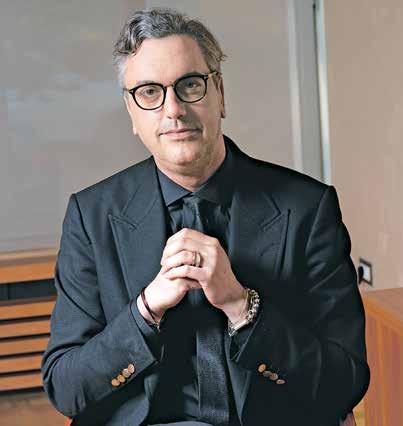
ing for adhering to the EU’s increasingly stringent and demanding rules and regulations.
As a business association, how does the Chamber of Commerce & Industry of Serbia prepare its members to comply with standards relating to sustainability and responsible business?
— We adopted the Green Declaration, activated the CCIS Green Team and formed, in cooperation with GIZ, the Responsible Business Hub to support companies that export to Germany and other EU markets, particularly SMEs.
NETWORKING
The CCIS is introducing new forms of networking between local and foreign companies in sectors where Serbia has special potential
GAMING
pean market and for us to prove that we can offer organised and responsible supply chains that are ready to respond not only to the obligations of German law, but also to other directives at the EU level that have already entered into force or have been announced. Applying and adhering to German law will be a kind of preparatory train -
We have already offered business leaders multiple online tools that will help them – firstly to determine where they stand in relation to the requirements of responsible business, which relate to environmental protection and human rights as defined by international standards and the laws of the most important markets, and then to receive guidelines on how to improve their processes. We are available to assist in terms of interpreting regulations and organising bespoke training for exporting companies and their suppliers, in order to increase the stability of all links in the chain. We will organise workshops on risk analysis and risk management for companies from five industries: automotive, metals processing, textiles, food and wood processing.
New opportunities for exports of IT products and services were created with the participation of our gaming firms in the gaming fair in Cologne SUPPORT
We’ve offered business leaders online tools to determine where they stand on the requirements of responsible business and guidelines for improvement
16 GERMANY 2023 16
Serbian exporters could end this year with the highest annual performance on the German market to date, totalling almost 4.7 billion euros
Acting Responsibly Today is Our Legacy for Tomorrow
Siemens has endeavoured since its very inception to improve people’s lives with the help of technology. It introduced electrification to the world of the 19th century, while it today brings digitalisation as a prerequisite for doing business and competing on the global market
Here we speak with Siemens’ Medeja Lončar about the kind of world we should strive to leave behind for future generations; how Siemens views itself and its role in this time of changes and challenges, as well as the importance of innovations and smart technologies to the future of business.
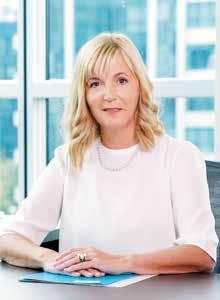
Do you believe that technology should always have a purpose and that today we should focus, among other things, on that which protects our planet?
— Standing behind Siemens’ guiding notion of “technology with purpose” is a clear conviction that all investments in new technologies should be oriented towards areas that will help the planet, reduce the consumption of resources and protect the environment. We today need smart and responsible technologies more than ever, and everything we’ve experienced over the past few years serves as a strong reminder that there is no joking with the climate. As individuals, a society, organisations and institutions, we must understand - from the local to the supranational level - that ensuring sustainability today means leaving a legacy for tomorrow. That’s why it’s essential that each of us, in our domain, do the best we can to bring the finest to this planet, particularly in the struggle against climate change and advocating for a green transition, and to prevent negative environmental impacts. When it comes to the economy, this is achieved through new, modern technologies and constant innovation.
Do you believe that technology, digitalisation and innovation represent the right response when it comes to
Siemens has almost 47,000 approved patents worldwide, and last year alone registered an average of 21 patents per working day
creating a sustainable future, and that companies that fail to realise this will disappear?
— I would say that this awareness is growing by the day and that, among others, global companies that think and operate responsibly deserve credit for spreading this awareness. As an example, Germany has adopted a law stipulating that all suppliers working for German companies must comply with specific rules relating to respect for human rights and adherence to environmental
standards, which then spills over to impact other companies, including those from Serbia that work as suppliers to German companies.
It was eight years ago that Siemens committed to becoming carbon neutral by 2030 – and the company has to date invested 650 million euros in decarbonisation and reduced CO2 emissions at its facilities and factories by 46 per cent. Siemens then, two years ago, set itself even more ambitious sustainable development goals through its DEGREE programme, which implies switching completely to electric vehicles, using energy exclusively from renewable sources and reducing the CO2 emissions of its suppliers by 20 per cent by 2030.
How does a better world and a better future look from your perspective?
— Siemens has almost 47,000 approved patents worldwide, and last year alone registered an average of 21 patents per working day, which clearly testifies to our aspiration to use modern and innovative technologies to ease the operations of other companies and the lives of all of us.
A better world and a better future means a world in which environmentally sustainable technologies have been widely adopted; a world that has bridged the gaps in education and made learning resources available around the planet thanks to smart technologies; a world that enables improved economic inclusion and access to financial services, employment opportunities and tools for entrepreneurship. In short, that better world is one where technologies help to reduce economic, social, educational and other differences between peoples.
cordmagazine.com 17
BUSINESS | MEDEJA LONČAR
SIEMENS CEO FOR SLOVENIA, CROATIA AND SERBIA; VICE PRESIDENT OF THE BOARD OF DIRECTORS OF THE GERMAN-SERBIAN CHAMBER OF COMMERCE (AHK SERBIEN)
Serbia is an Appealing, Yet Risky Market
German companies find Serbia to be an appealing market for sourcing and investments, but they acknowledge its risks, including geopolitical crises, regional conflicts, high prices and economic slowdowns in key export markets, which create a level of uncertainty
During the first four months of 2023, trade in goods between Germany and Serbia reached a value of nearly three billion euros – according to data from the German Federal Statistical Office. This marks an increase of almost 18 per cent.
The foreign trade exchange between the Federal Republic of Germany and the Republic of Serbia increased nominally by 26.3% in 2022, partly due to rising prices, but only partly. “These data indicate significant growth,” says Alexan -
der Markus, Executive Member of the Board of the German-Serbian Chamber of Commerce, who expects a new record total in the bilateral trade exchange between our countries to be set this year.
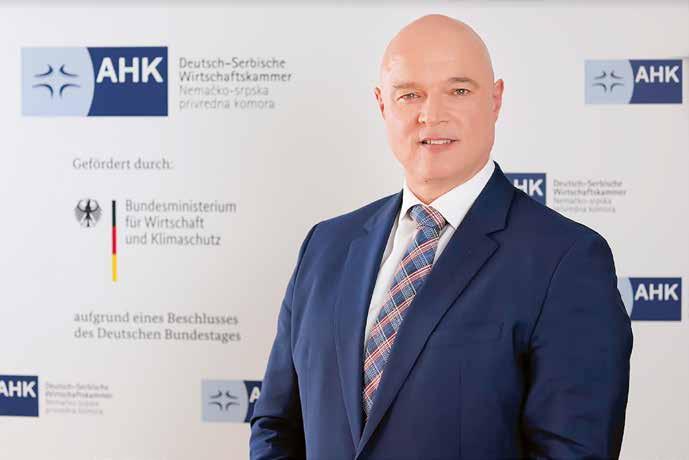
These positive results are due to ever-more German companies producing or expanding their existing manufacturing sites in Serbia. Most of these projects produce components for German industry.
“In the opinion of our members, as expressed in the latest AHK survey on business conditions
18 GERMANY 2023 18
INTERVIEW | ALEXANDER MARKUS EXECUTIVE MEMBER OF THE BOARD OF THE
GERMAN-SERBIAN CHAMBER OF COMMERCE
in Serbia, the assessment of the economic situation in Serbia for the year 2023 has not deteriorated,” says our interlocutor.
Almost half of surveyed AHK respondents (47%) rate their business as good, while only 6% consider it as being less than satisfactory. Business forecasts for the current year also show optimism, with only 7% of those surveyed expressing concerns about a worsening of their turnover and results.
“For German companies, Serbia remains an attractive market for sourcing and investments,” explains Markus. “Nevertheless, they also mentioned certain risks: geopolitical crises and regional conflicts, high prices, and economic slowdowns in key markets of Serbian exporters, which create a certain level of uncertainty for them.”

How would you assess the impact of the Purchasing Initiative Western Balkans in terms of boosting exchanges between companies from Serbia and prospective German partners?
— We particularly recommend looking for new partners in times of supply chain challenges, global uncertainties and transformation processes. Still, market transparency and qualified access to procurement markets remain relevant topics in Serbia. Western Balkan countries have great potential. However, it is not just about sheer quantity – the increasing quality of Serbian companies’ products is evident. Moreover, this initiative focuses on knowledge-sharing, best practices and technology transfers. It has thus contributed significantly to making Serbian suppliers’ products better and to enhancing their competitiveness.
But this only advances one step at a time. First, a German buyer demands samples. They then discuss what needs to be changed to achieve the required quality. The Serbian company must sometimes invest in new equipment, because they cannot attain the necessary quality using their existing machinery. From time to time, the buyer company supports the supplier in doing this, for example by signing long-term contracts or agreeing to specific grace periods.
This year’s main B2B event of the Supplier Initiative is scheduled to take place in Cologne on 12th October. More than 50 German companies have already confirmed their participation. Interested German companies predominantly come from the metal processing sector, automotive supply sector, plastic processing and plastic materials production sector, as well as a smaller number of companies from the electrical engineering and electronics sector.
RECORD
I expect a new record total in the bilateral trade exchange between our countries this year
INFRASTRUCTURE
Infrastructure investments are a major lever for making remote areas more attractive to investors
KNOWLEDGE
During the upcoming autumn, the Chamber is organising studybusiness trips for Serbian companies to acquire knowledge of modern technologies
How often do you organise events at which German and Serbian companies can exchange practices and insights related to technological advancements in their respective sectors and prospects for cooperation?
— We are very proud that we facilitate real exchanges of experience and insights between German and Serbian companies, particularly pertaining to technological advancements in their respective sectors and the potential for collaboration.
Throughout the calendar year, we organise a series of targeted events and delegation trips designed to bring together key stakeholders from both sides, with the aim of establishing business contacts, exchanging knowhow and experiences of businesses, as well as deepening collaboration between German and Serbian companies.
These events vary in nature, ranging from specialised workshops and industry-focused seminars to high-profile conferences and innovation showcases. Our strategic approach ensures that these gatherings are not only informative, but also conducive to forging meaningful connections and partnerships.
Participants in the project Civil Security Technologies and Services in Serbia and Albania had an opportunity this past February to hear about the latest trends in the field of civil security from German experts and companies.
Raising awareness among members about the importance of energy efficiency and sustainability is one of our strategic objectives. That’s why we organised a professional conference on the topic of Energy Efficiency in Buildings in Serbia and Montenegro in May this year. This was an opportunity to hear presentations of experts from Germany and Serbia on this current topic,
cordmagazine.com 19
as well as to get acquainted with German companies and their products and solutions in this field.
During the upcoming autumn, the Chamber is organising study-business trips for Serbian companies and organisations to Bavaria on the topic of “Smart Cities and Digitalisation,” as well as study-business trips for Serbian companies to Baden-Württemberg on the topic of “Agricultural Equipment and Machinery”. These trips are intended to establish business contacts, exchange experiences and acquire knowledge of modern technologies applicable to these directions.

time between these locations will be reduced to 20 minutes. This will be a gamechanger for a town like Ivanjica, and an important factor in attracting qualified workers to Ivanjica, because people will be able to commute between the two locations quickly and easily.
Infrastructure projects have the potential to reshape the economic landscape and to have a significant influence on the strategic decisions of German companies to come to Serbia in the future. That was actually the essence of the business development concept following German reunification in the 1990s. Namely, every Deutschmark invested in infrastructure improvement paid back threefold: firstly as income for the companies executing these projects; secondly as an advantage at the regional level – because East German infrastructure was soon more modern than that of the West; and thirdly as a boost to quality of life for the people living there, which finally brought a halt to the outflow of people from East to West.
This is why investment in infrastructure also has a profound ripple effect in Serbia that extends beyond major urban centres. The development of new roads and railways not only eases travel conditions, but also opens up remote regions, including smaller Serbian towns. And that’s what we see when it comes to investment from Germany: new investors are today usually seeking sites in medium-sized Serbian cities or smaller towns.
How do you consider the effects of the implementation of the Due Diligence Act in Serbia? Will this initiative help companies retain the best workers?
— The vast majority of German companies would not need a law like the “Lieferkettensorgfaltspflichtengesetz”, which we translate into English as “Due Diligence Act”. There is a Latin proverb “nomen est omen” [meaning ‘the name is a sign’]. Unfortunately, there are always some black sheep, that cannot be avoided.
We are witnessing that Serbia, with the support of the EU, is investing a lot in new roads, railways, and broadband internet. Do you think these efforts will encourage German companies to expand further into smaller Serbian cities?
— Yes, I absolutely think so! Infrastructure investments are a major lever for making remote areas more attractive to investors. Let me give you an example: I visited two of our member companies in Ivanjica in August. They are awaiting the extension of the motorway to link the town to the next bigger city, Čačak. When this happens, the driving
In Germany, but not only there and actually all over Europe, we have this term “honourable merchant – der ehrbare Kaufmann”. This term comes from medieval times and played an important role in the Northern German “Hanse” [Guild]. It equates to trust, first of all, because this is a core value and precondition for every business endeavour. But where does trust come from? It comes from honesty, from a commitment to responsible business practices that include good working conditions, employee health and safety, and a sense of contributing to the greater social good. Such factors certainly play an important role in enhancing job satisfaction and engendering a stronger sense of loyalty among employees.
20 GERMANY 2023
The latest AHK survey shows that 47% of respondents have a positive view of the economic situation in Serbia in 2023
Seeking new partners is a must during times of supply chain challenges. Increased market transparency and access in Serbia are thus important
Encouraging Domestic Producers to Grow and Develop
The project SME HUB is the result of a public-private partnership between the Government of Switzerland, which is represented by the Swiss Agency for Development and Cooperation (SDC), and Serbian company ICT HUB
Our aim is to open the door for small and medium-sized enterprises to become suppliers to multinational companies that operate in Serbia. We believe in the strength of Serbian companies and their ability to provide high-quality products – says SME HUB project director Aleksandar Goračinov.
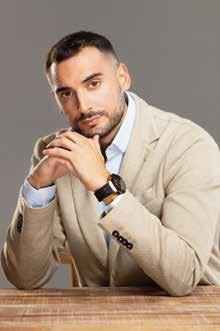
When it comes to some important projects, which includes SME HUB, so little is known in our country and these projects are insufficiently discussed. Could you please explain what kind of project this is?
— SME HUB represents a unique endeavour to realise significant changes across the Serbian economy as a whole by strengthening one of its basic pillars: the SME sector, in the context of its ability to collaborated with players on the global market and major domestic companies. With a value exceeding seven million Swiss francs, this project will enable the transformation of 80 SMEs over the next five years, while more than 400 local firms will be familiarised with the benefits of cooperating with multinationals and large domestic companies, while many will become their suppliers. This form of cooperation will enable domestic producers to become more competitive and advance their operations, with which improved working conditions will be secured for at least 5,300 existing and new workers.
What do domestic manufacturing enterprises gain by joining the SME HUB?
— On the basis of the needs of multinationals and large domestic companies,
SME HUB carries out the selection of potential suppliers and provides support in establishing cooperation. On the other hand, through the medium of this project, small and medium-sized enterprises will have a unique opportunity to utilise their potential and develop further, in order to become competitive on the global market and create an opportunity to expand their business.
SME HUB will work with Serbian firms that have the capacities, qualities and expertise to supply multinational companies with their products. This means that Serbian manufacturing enterprises will have the opportunity, on the basis of the tangibly defined needs of multinationals or large domestic companies, to apply to participate in the project via the website of the project. And those that meet the conditions for inclusion in the transformation process – through a selection process that uses predefined criteria – will be selected. The transformation of their business will take 24 months at the most, after which these Serbian enterprises will potentially meet the conditions required to become suppliers. Applying SMEs must have production activities that have been running for a minimum of three years, between 15 and 250 employees, and minimum domestic ownership capital of 51 per cent.
You directly stimulate the growth and development of Serbian manufacturing enterprises?
— Through this endeavour, SME HUB is building long-term partnerships that enable exchanges of knowhow, technology and best practices by connecting local enterprises with multinationals, which will result in the modernisation and advancement of business processes. We thereby encourage the growth and development of Serbian manufacturers directly. Through the major contribution of the state and numerous incentives, a positive business climate has been created that is recognised by global giants, and SME HUB will further support their business by finding suitable local suppliers.
cordmagazine.com 21
BUSINESS | ALEKSANDAR GORAČINOV PROJECT DIRECTOR, SME HUB
With a value exceeding seven million Swiss francs, this project will enable the transformation of 80 SMEs over the next five years
Maintaining Momentum is the Challenge
Brose is a reliable partner to its customers and a responsible employer to its workers. It also contributes to the development of Serbia’s economy
with Brose parts, we can’t help but ask you what your Pančevo factory is sending out into the world...
Despite numerous challenges, Brose has succeeded in implementing all of its plans in Serbia. According to previous announcements, the company intends to complete its investment cycle in Pančevo by 2025, when it is projected to have a total of 1,100 workers and an annual turnover of 440 million euros.
Has Brose maintained the same positive rhythm since the initial period of its investment here?
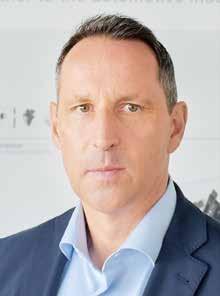
— Brose has maintained its positive rhythm and achieved its goals in Serbia so far. We have launched series production of electric motors for cooling fans, power steering motors and electric oil pumps, as well as electronics at our new plant in Pančevo in the summer of 2021. It was during that same year that we also launched our R&D activities in Pančevo, which we are expanding in accordance with our plan.
Have your plans changed? What kind of vision do you have now?
— Brose has not changed its plans to complete its investment cycle in Pančevo by 2025. The company has so far invested around 180 million euros in the new plant and expects to employ around 1,100 workers by 2025. However, our business development is linked closely to the situation on the volatile automotive market in general, which is today confronting several crises.
Brose’s vision is to shape the future of mobility with innovative, competitive and efficient mechatronic solutions. We are a reliable partner to our customers and a responsible employer to our workers. We also contribute to the development of Serbia’s economy and society by supporting various projects in the fields of sport, culture, education and social welfare.
With awareness of the fact that 50 per cent of new cars worldwide are installed
— The Pančevo factory is an important part of Brose’s strategy to satisfy the growing demand for its products and to develop new technologies for the future of mobility. Our location is the development centre for Cooling Fan Modules (CFM) and we are developing and producing everything regarding that product, expect the plastic frame. Beside CFM, at the Pančevo factory we are also producing and exporting electric motors for steering systems and electric oil pumps, as well as electronics. We are very proud that our products are innovative and installed in modern vehicles that provide a better consumer experience. For example, we are producing electronics for RadarSmart opener generation 3, which enables hands-free opening of liftgate doors. These are mechatronic components and systems that provide comfort, safety and efficiency for motor vehicles. The electric oil pump in particular is a key component of hybrid and electric vehicles.
You have more than 650 employees and excellent cooperation with schools and colleges, while you pay above-average salaries and are considered a desirable employer... Do you believe that your success is dependent on your people’s level of education and motivation?
— Brose is a company that values its employees and their education and motivation. We believe that the company’s success is dependent on the quality and performance of its people, who are the driving force behind our innovative and efficient mechatronic solutions.
22 GERMANY 2023 22
INTERVIEW | MATTHIAS TUPY BROSE
and society by supporting various projects in the fields of sport, culture, education and social welfare
Serbia has taken commendable strides in enhancing its appeal to foreign investors and increasing its competitiveness
Brose offers its employees excellent working conditions and benefits, such as flexible working hours, health insurance, performance bonuses, training and development opportunities, and much more. We also cooperate with schools and colleges in Serbia to support the education and career development of talented youngsters.
Brose provides scholarships, internships, mentoring programmes and practical projects for students and graduates. Brose has also received the Top Employer 2023 award for its excellent working conditions and employee benefits. Brose is highly committed to CSR projects and supports the local community and students of the three biggest universities in Serbia, as well helping with donations to various humanitarian associations.
The industrial revival of Pančevo was launched by company ZF, after which Brose arrived, while we now have an announcement of the arrival of company Naval Box – CAL. Do you expect more German investors to arrive in the city?
— Pančevo has been attracting a lot of interest from German investors, especially in the automotive industry, over recent years. With regard to Serbia’s business environment, it is very evident that Serbia has taken commendable strides in enhancing its appeal to foreign investors and increasing its competitiveness. The challenge now is to maintain or even increase this momentum, especially under the impression of inflation that is a threat to all industries in all countries.
How do you see the future of the automotive industry? Could hybrid, electric or autonomous vehicles fully replace the kinds of cars that we drive today?
— The future of the automotive industry is influenced by many factors, and the automotive industry is currently already undergoing a major transformation, driven by four disruptive technol-

ogy-driven trends: diverse mobility, autonomous driving, electrification, and connectivity.
It is expected that hybrid, electric and autonomous vehicles will gradually gain an increased market share and eventually dominate the automotive industry of the future. Autonomous vehicles are vehicles that use sensors, cameras, software and artificial intelligence to operate without human intervention. These types of vehicles offer many benefits for the safety, efficiency and comfort of drivers and passengers.
However, there are also some challenges and obstacles that prevent hybrid, electric and autonomous vehicles from fully replacing the conventional cars that we drive today, such as the lack of adequate infrastructure and standardisation for charging, parking and communicating with these vehicles, as well as consumer acceptance and trust in these vehicles’ performance, reliability and range.
It is therefore possible that the conventional cars that we drive today will not be fully replaced by hybrid, electric and autonomous vehicles anytime soon. However, they will certainly play a more important role in the automotive industry and society over the long term.
As a result, the automotive industry will need to adapt to these changes and embrace innovation in order to remain competitive and relevant. With its product portfolio, Brose sees more opportunities than risks in this market development.

cordmagazine.com 23
We are very proud that our products are innovative and implemented in modern vehicles, which provide a better consumer experience
Ready for the Company to Scale New Heights
Company LEONI is among Serbia’s largest exporters, but is also the largest employer in the country’s industrial sector, with approximately 13,200 employees at four factories. These facts provide plenty of reason for pride, but also carry great responsibility
More than 50% of the value of our product comprises newly created value. We export 100% of our production and our exports are twice as large as our imports, so we provide our country with a clean foreign exchange inflow – note LEONI representatives with pride.
According to the Ministry of Finance’s “Current macroeconomic development” presentation, LEONI Serbia ranks among the country’s top five exporters. What has contributed to such a good result?
— We are proud that we are at the top of the list of the largest Serbian exporters. According to the statistics of the Ministry of Finance, over seven months we exported goods worth 292 million euros, which is an increase of as much as 33% compared to the same period of last year. We handle with seriousness and responsibility the orders of our customers, and they are manufacturers of premium class motor vehicles, and it is this has resulted in good business results. The automotive industry is recovering after the global crisis caused by the covid pandemic and we are happy that we are part of that recovery; that we are able to satisfy the demands of our renowned customers while simultaneously securing the earnings of our employees and contributing to the development of our country.
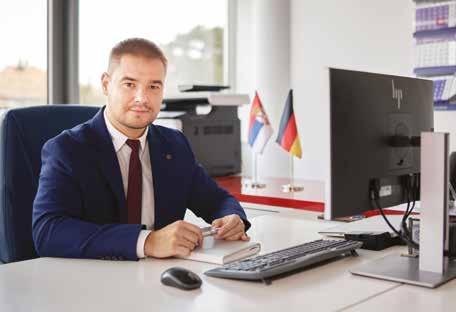
Apart from exports, how else does LEONI contribute to the progress of the Serbian economy and society?
— Our factories are located in Prokuplje, in Malošište in the municipality of Dol-
jevac, in Niš and in Kraljevo. These were all areas with excessive unemployment figures. By hiring more than 13,000 people, LEONI has contributed significantly to reducing unemployment levels in these places. As such, of the total number of workers in Prokuplje, as many as 26% work at LEONI, while in Kraljevo we represent a 15% share of total employment. We have thereby raised living standards not only for our employees and their families, but rather also for the entire community in which they live.
On the basis of taxes and contributions, LEONI provides more than 48 million euros to the state budget annually. We cooperate with more than 700 local suppliers and enable them to generate an annual turnover of approximately 41 million euros. In this way, LEONI isn’t only a
major exporter, but also one of the drivers of the Serbian economy as a whole.
How is LEONI as an employer?
— It goes without saying that the LEONI fulfils all of its legal obligations, such as regularly paying wages, paid overtime and nightshift work, taxes and contributions on the full salary amount, a working environment without harmful influences on health etc. But we also provide more than that; caring for employees is our key value: LEONI Serbia engages as many as 92 buses per day for organised transportation, which are used by more than 10,000 employees. We have clinics staffed with doctors at all four locations, so employees don’t need to waste time going to their regular clinic. Then, on the basis of contracts with the compa-
24 GERMANY 2023
INTERVIEW | MILOŠ MANIĆ LEONI VICE PRESIDENT, GENERAL MANAGER LEONI SERBIA
ny, a large number of retailers provide our employees with benefits. Apart from gifts for New Year and 8th March [International Women’s Day], this year we also provided valuable gifts to 500 first year school pupils whose parents work at LEONI. Apart from being the largest employer, we also strive to be among the best employers.
Is there anything hampering LEONI’s operations in Serbia?
— It is essential to reduce costs in order to generate greater profitability. LEONI pays a high price for high absenteeism in Serbia – in terms of employee absences due to sick leave. Of all the countries where LEONI is present and in the region, the highest rate of sick leave is in Serbia, and is twice as high as it is in the next country. Moreover, the period during which sick leave costs are the on the employer’s account is the longest in Serbia – 30
days, while the practice in most countries is for sick leave costs to be borne by the national health fund after five days. For our common good, we expect our state to intervene urgently and to tailor legislation to satisfy the needs of the economy.
This summer saw LEONI AG change its ownership structure and implement financial restructuring. How will this impact the operations of LEONI Serbia?
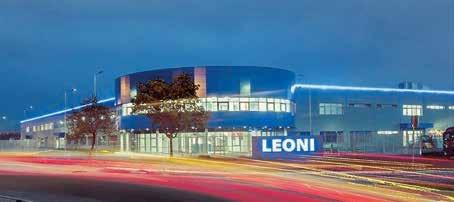
SERBIA 2023
The LEONI Wiring Systems Division is one of the world’s leading providers of complete wiring systems and customised cable harnesses for the automotive industry. LEONI Serbia has been part of that system since 2009.
• 4 factories – Prokuplje (2009), Malošište (2014), Niš (2017), Kraljevo (2018)
• 13,200 employees
• 203 million euros of investment in facilities and equipment
• Production of KSK wiring harnesses for manufactures of luxury vehicles
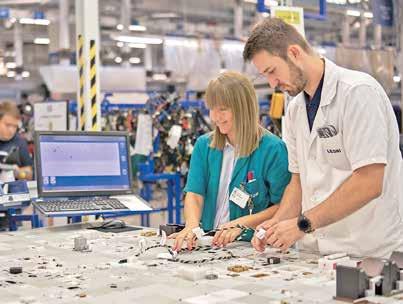
• A network of approx. 700 local suppliers
• Focus on product quality and sustainable development

— I expect the impact to be very positive. Refinancing is underway, and – as announced by our management – to follow in the operational area will be a focus on the needs of customers, the development of technologies and products, and increased efficiency. With its four factories, LEONI Serbia is ready to provide a full contribution to LEONI AG scaling new heights.
What are LEONI Serbia’s plans for the decade ahead?
— Our four factories have been rounded off as elements – in terms of infrastructure and equipment – and as such our next task is to increase productivity and quality. And ensuring the company’s continuity in Serbia. We are working intensively to attract new projects that have the potential to safeguard production until 2035. LEONI is a company that’s known as a pioneer in optimising the development of wiring systems, production and supply chains. Researchers, engineers and manufacturing experts at LEONI designed innovative zonal architecture and we, at LEONI Serbia, will be absolutely ready to realise that innovation when it becomes broadly applied. We know that we will have the strong support of the headquarters of our LEONI Group and our LEONI family in everything we do. The recent restructuring brings new strength to the LEONI Group and we are continuing along the road of success together.
cordmagazine.com 25
Leoni working intensively to attract new projects that have the potential to safeguard production until 2035
Switching Customers to the Fast Lane
DB Schenker is among the world’s leading logistics providers, offering all kinds of transport and logistics services. In an era defined by rapid globalisation and complex supply chain demands, DB Schenker distinguishes itself as an innovative leader and sustainability pioneer in the logistics industry, providing state of the art solutions that keep businesses thriving

lobal Reach, Local Expertise
G| One of DB Schenker’s defining strengths is the ability to seamlessly integrate global reach with local expertise. Our vast network of offices and warehouses worldwide ensures that we can cater to the unique needs of local markets while providing clients with a global perspective, which is proven daily by the team of experts at DB Schenker in Serbia. DB Schenker has been a trusted partner in Serbia for years, offering a comprehensive range of logistics services that cater to diverse industries. We are today present at three locations in Serbia, with over 13,000m² of warehouse space and a team of 85 employees. We have developed a strong local presence and long-term partnerships, establishing ourselves as a go-to logistics provider known for reliability and efficiency.
Land transport that always goes the extra mile | As part of the biggest European network, customers in Serbia can benefit from hassle-free solutions for shipments of any size. The DB SCHENKER freight products system offers a doorto-door service for your freight, with the fastest lead times and daily departures. When it comes to shipments for which delivery time is crucial, we can offer you our DB SCHENKER system premium. For bigger shipments, we recommend part or full load solutions with even higher flexibility and a completely individualised approach to your needs.
We are today present at three locations in Serbia, with over 13,000m2 of warehouse space and a team of 85 employees
With our platform connect, customers now handle their logistics processes even more efficiently and carefree. DB SCHENKER | connect incorporates all services into one portal, providing clients with maximum support at every stage of the supply chain. Faster than ever before, you now have seamless entry to all services. And as if that weren’t enough, you can also easily receive quotes and book additional shipments on a single platform.
As Jelena Kojić, Head of Land transport Area Adriatic (RS, SI, HR, BA, MK), explains: “At DB Schenker we strive for continuous innovation and modernisation. We listen to the market and proactively improve our company process -
es and business technology. We thereby enable our clients to improve and grow their business. We are authentic and transparent. That is the key to our success! The digitalisation of business is part of the modern work environment, which is why we launched our renewed connect platform. Platform allows our clients to organise their transports simply and efficiently. Guided by the needs of our clients, we managed to introduce modern online shopping to the B2B logistics business. Whether large corporations or small businesses, each of our clients can use “Connect 4” to generate real-time quotes and estimate delivery times. We offer a fully digitalised process – from the offer to the invoice.”
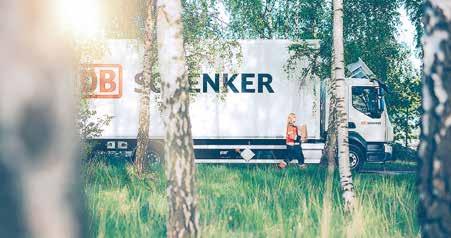
26 GERMANY 2023
BUSINESS | DB SCHENKER
Proud of the First Five Years
In just five years, Lidl Serbia has opened a total of 67 supermarkets in 38 cities, which are supplied from two modern-equipped and “green” logistics centres. The company’s 3,300 employees comprise a unique Lidl team that works on a daily basis to provide a unique shopping experience and the best quality-to-cost ratio for all consumers, for which Lidl is recognised around the world
You are this month commemorating five years of operations in Serbia. Have you managed, as a company, to realise all plans; and has our market met your expectations?
— It is particularly satisfying to celebrate five years of successful operations, considering the pandemic and the health challenges we’ve faced. Despite the circumstances, we managed to implement plans at the projected tempo and to improve our processes and systems from year to year, thus enabling us to achieve even greater efficiency in every segment of the business.
And have consumers been satisfied with Lidl over the past five years?

— This is indeed the most important issue for us. We measure success precisely on the basis of consumer satisfaction, which is why we, at Lidl, are proudest of the fact that, according to Gfk research for 2023, we have become the first choice of the largest number of consumers for daily grocery shopping. According to the same research, Lidl also ranks top when it comes to overall consumer satisfaction, while customers also rated us number one in the categories of fresh fruit and vegetables, as well as bakeries. These results show that consumers are satisfied with us, and we will certainly continue nurturing and improving on the trust they’ve placed in us.
Your slogan “Simple. Better. More Affordable” indicates that you prioritise the needs of your customers?
— We strive to ensure that, when observing shopping baskets containing products of comparable quality, the basket of goods purchased at our shops is the most affordable. Apart from price, from day one we’ve also provided consumers with the best quality-to-cost ra-
tio. I believe that over the past five years, because of all of this, we have been simpler, better and more affordable, with the promise that we will continue listening to the needs of our customers. We will also do so through our loyalty programmes, such as Lidl plus, through special segments of the product range, such as our “Free from” brand, which contains a rich offer of gluten-free products, and through other trends in the food industry.
Despite being a German company, you haven’t overlooked domestic suppliers in your operations, while at the same time you’ve also had a positive impact on our country’s exports...

— One of our primary goals – as an international company that acts responsibly towards the countries in which it operates – was to secure products from domestic suppliers that satisfy our high standards of quality. That’s why more than 100 domestic suppliers now contribute products to our range, while, for example, our specially created ‘S ljubavlju, domaće’ [With love, domestic] range of products has almost 100 different items.
On top of all that, in terms of exports, the quality of our products and suppliers has proved exceptional and has contributed to us currently exporting more than 20 products, such as dessert dumplings, baked goods, cheeses, soups, tomato puree and frozen vegetables. This is certainly a direction that we want to retain and we are continuing to work on our exports being even greater, while we will now enjoy the birthday benefits that we’re preparing for our consumers and for our 3,300 colleagues throughout Serbia.
cordmagazine.com 27
BUSINESS | DRAGAN ČIGOJA LIDL SRBIJA CEO
We strive to ensure that, when observing shopping baskets containing products of comparable quality, the basket of goods purchased at our shops is the most affordable
Dialogue is Key
Belgrade itself has such a rich cultural life that the Goethe-Institut is happy to be a small part of it by providing German artists to contribute to well-established festivals like Bitef, the Belgrade Jazz Festival, or BelDocs; by cooperating with institutions like the Belgrade Cultural Centre or the Museum of Contemporary and Modern Art ~ Dr Christoph Veldhues

28 GERMANY 2023 INTERVIEW | DR CHRISTOPH VELDHUES
OF THE GOETHE-INSTITUT BELGRADE
DIRECTOR
Opening his first interview for CorD, the newly appointed director of the Goethe-Institut Belgrade explains: “Each of our 160 branch offices in 100 countries has to take into consideration the regional and local conditions of its activities; what is expected from the Goethe-Institut by our partners; and what, from our point of view, needs to be addressed in order to add to the cultural life of our respective guest country.”
Given that you’ve worked at various Goethe-Institut hubs worldwide, how do you tailor your programmes to resonate with diverse cultural contexts?
— The Goethe-Institut, on behalf of the Federal Republic of Germany, fosters
and related German and European organisations. Dialogue is key.
Considering your experience, which Goethe Institute programmes do you consider as being most relevant and well-received by the Serbian public?
— Belgrade itself has such a rich cultural life that the Goethe-Institut is happy to be a small part of it by providing German artists to contribute to well-established festivals like Bitef, the Belgrade Jazz Festival, or BelDocs; by cooperating with institutions like the Belgrade Cultural Centre or the Museum of Contemporary and Modern Art (cf. our upcoming exhibition “Future Perfect”); by setting up events like the Goethe(Film)FEST, the Belgrade Art Week, or the “Next Generation” series of perfor-
Škograd. The reach of our programmes extends beyond the Serbian capital, as we also support activities in rural areas (e.g., ARLEMM festival) or between countries, for instance in the theatre project “New Stages South East” (here the Belgrade branch office is serving not only Serbia, but also Montenegro). It is most important for us to join forces with Goethe-Institutes and partners in other post-Yugoslav countries that share a considerable amount of common history and, hopefully, future – hence our series of Western Balkan projects dedicated to remembrance and reconciliation like “Missing Stories” or “Present/ Past”. And let’s not forget that an important part of the Goethe-Institut’s work is to enable Serbian schools to provide substantial and meaningful German language programmes, the impact of which usually extends much further than just language learning.
Despite reports of waning interest in EU accession among Serbian citizens, how does their enthusiasm for European and German culture, as well as cultural exchange, fare?
international exchanges and understanding in the areas of creativity, education and civil society; coupled with information pertaining to recent cultural developments in Germany and the promotion of teaching and learning the German language. The mission of the Goethe-Institut as a whole reflects global changes in these areas –e.g., the aspect of sustainable solutions has achieved a certain prominence in our programmes everywhere – and thus provides a set of worldwide programme options for my work. In addition, each of our 160 branch offices in 100 countries has to take into consideration the regional and local conditions of its activities: what is expected from the Goethe-Institut by our partners; and what, from our point of view, needs to be addressed to add to the cultural life of our respective guest country. Usually when I’m settling into a new station, my setup of a specific programme line results from a process of consultations with our experienced local staff, as well as partners both from the guest country
mances, including “Failure as practice” and “Inequality as practice” – all of them preferably co-designed with local partners and other European cultural centres. We are committed to helping improve the participation of the very vital Serbian civil society in the political process; to that end, we ally with civil society organisations like CZKD, the Roma Forum, or Merlinka, and we offer space to civil society groups like Commons or
— It is safe to say that the Goethe-Institut’s partners and audience are generally staunch supporters of a clear EU perspective for Serbia, as a country that’s doubtless “in the heart of Europe”; and, indeed, all reasonable considerations – taking into account our common cultural, economic and strategic interests – suggest Serbia’s EU integration as the natural move. Based on lots of conversations, I am optimistic that a realistic understanding of this move’s benefits, both for Serbia and

cordmagazine.com 29
Innovative systems for door and window technology www.geze.com
It is safe to say that the Goethe-Institut’s partners and audience are generally staunch supporters of a clear EU perspective for Serbia, as a country that’s doubtless “in the heart of Europe”
Europe, will sooner or later overcome all petty nationalistic arguments. That’s why the Goethe-Institut actively participates in shaping and spreading this understanding: for instance, by partnering with EU organisations on projects like “Pulse of Europe – EU Media Trips”, which takes Serbian journalists to places of EU best practice all over the continent; or by operating, on behalf of the EU Commission, the terrific “Culture Moves Europe” programme, which provides tons of opportunities for travel and exchanges between artists in Europe.
Navigating the varied tastes and interests of multiple generations, from baby boomers to Gen Z, can be challenging. What kind of content appeals to both demographics?

— We always try to offer a mix of programmes. Some topics perhaps appeal more to younger people – to name a few: “Playing Narratives”, an education project via gaming; the upcoming Belgrade concert of the German band “Ok.Danke. Tschüss”, intended for schoolkids; or our monthly “reduce-reuse-recycle” sustainability activities at the institute, with a repair workshop to be added. We plan to revitalise artists’ collectives from the former Yugoslavia in the countryside, which might be a good example for a project that calls for a somewhat more experienced audience. I assume, and notice, that the regular art exhibitions and literary readings at our library in particular are interesting regardless of age and they apparently attract all kinds of people passing by our window on Knez Mihailova Street.
Given the growing popularity of the German language in Serbia, how often do you engage in casual conversations in German with Serbian citizens?
— Unfortunately, as I arrived in Belgrade only recently, I so far haven’t made many Serbian acquaintances that aren’t related to my job; I’m working on it. However, I did notice that whenever I try to make use of my still very rudimentary Serbian in shops or at a bus stop, people often recognise me as German and tend to answer in German – which makes it easier on the one side, but certainly doesn’t help my efforts to learn Serbian…
Which of the German courses offered by the Goethe-Institut are in high demand in Serbia?
— It goes without saying that all our German courses are great and can be recommended. Not only because they are offered in an authentic German atmosphere, and
with a good deal of German culture into the bargain, but also because we highly value, and therefore invest in, the quality of our teachers, and we systematically align the courses with our own internationally recognised German exams, i.e., by awarding “Goethe certificates” at all language proficiency levels. As we can offer the complete set of language learning options, everybody should be able to find the best approach for them. Some prefer a face-to-face classroom experience – be it superfast, in our super-intensives, or in the slower pace of our semester courses –while others appreciate the time flexibility of digital (or at least blended) learning in the comfort of their own home. Demand for German courses online has been on the rise constantly since their efficiency was proved by the pandemic. This is especially true for our tailored company courses. An additional bonus is that digital courses for students are now being offered with a discount of 50% off the regular price!
30 GERMANY 2023
The reach of our programmes extends beyond the Serbian capital, as we support activities in rural areas (e.g. ARLEMM festival) or between countries, for instance in the theatre project “New Stages South East”
Long-term Collaborative Partnerships
Since its inception, aid organisation Help has provided assistance where most needed, and has done so exclusively on the basis of real needs. Its development efforts also include capacity building for local partners, such as civil society organisations and local governments, with which Help builds long-term collaborative partnerships
Our strategic plans include regionalisation and localisation in order to better address needs. We thus established a Help-Hilfe zur Selbsthilfe regional office for Southeast and Eastern Europe located in Belgrade, Serbia, in early 2023, – explains Help regional representative Julia Brückner, before announcing some other plans and further projects.
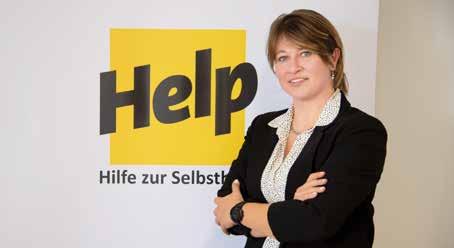
What is currently in your focus?
— The main projects implemented by Help in Serbia have gradually expanded from humanitarian relief towards socioeconomic development, in line with the Sustainable Development Goals. Our development efforts also include capacity building for local partners, such as civil society organisations and local governments, with which we build long-term collaborative partnerships. Our portfolio in Serbia consists of over 8,000 small and medium-sized enterprises generating income, 30 cooperatives (approximately 1,000 people), over 2,000 housing solutions (housing 10,000 people) and 50 small-scale projects that are improving the lives of local communities.
What are Help’s key initiatives and projects in Serbia, and how do they contribute to improving the lives of the individuals for whom they are intended, but also local communities and society as a whole?
— The key projects in Serbia, but also across the region generally, aim to improve living conditions and support the social inclusion of marginalised groups, including youth, women, disabled, (former) prisoners and minorities. Our goal is to improve their living conditions. The programme relies on regional cooperation and exchanges of knowledge to facilitate sustainable development growth.
It involves maintaining existing partnerships and building new ones, while engaging local communities in innovative and sustainable activities to promote inclusion, economic empowerment, and green growth that balances prosperity with environmental wellbeing, ensuring no one is left behind.
What are your strategic goals and plans for Serbia? How do you view the role of Help in the country’s socioeconomic development, in strengthening its stability and its ties with Germany, while advancing its approach to the EU?
— Apart from violent conflicts, the consequences of climate change are also contributing to the global increase in humanitarian needs. In order to respond to the fast changes taking place in the country and the region, our strategic plans include
regionalisation and localisation to better address needs. We thus established a regional office for Southeast and Eastern Europe, located in Belgrade, Serbia, in early 2023. This office, which has the capacity to mobilise, package and channel expertise from within the organisation and its implementing partners across the region, serves as a lead for the strategic programming of country-specific and regional portfolios, alongside quality control mechanisms.
In your cooperation with 85 towns and municipalities across Serbia, how much does it mean to you to have the support of partners and donors like the German Federal Foreign Office, the Federal Ministry of Economic Cooperation and Development, GIZ etc.?
— In our efforts to strengthen stability in Serbia and the region, and advance its approach to the EU, we are always grateful to our existing donors, particularly the German-related diplomatic and corporate communities. We also look forward to diversifying and establishing cooperative partnerships to expand our support to more people in need in Serbia and around the region.
cordmagazine.com 31
GERMAN NGO | JULIA BRÜCKNER REGIONAL REPRESENTATIVE OF HELP-HILFE ZUR SELBSTHILFE
Our key projects aim to improve living conditions and support the social inclusion of marginalised groups
A Leader Remains a Leader
Company Ekotehnika Viljuškari has spent more than a quarter of a century dealing with the repair and sale of forklifts. It operates across the territory of Serbia with around 1.500 clients, while it also enjoys excellent cooperation with numerous foreign companies
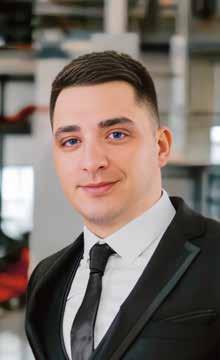
The forklift market is developing continuously, which is why this company is dedicated to keeping pace with the latest technologies and industry trends. Moreover, as Miloš Milovanović emphasises, the company invests a lot in staff training to ensure that it remains always a step ahead of the competition in providing the best services.
It seems unbelievable, but it’s true that your teams of mobile service technicians, and your service centres in Žabalj and Vrčin, cover the entire territory of Serbia. How do you succeed?
— Our company was established in 1997 and over the course of many years of operations we’ve amassed vast experience of working with Linde forklifts. We’ve been committed since the company’s inception to providing the highest level of quality in everything we do, which is why the quality of our services, products and customer support also represents our core value.
Our service teams possess excellent technical knowhow and rich experience of working with Linde forklifts, which enables us to resolve issues and carry out repairs effectively and efficiently. We strive to understand the specific needs of each client and to provide them with solutions that correspond best with their needs.
Thanks to our service centres in Žabalj and Vrčin, we are able to quickly and efficiently reach key industrial zones in Serbia, to intervene effectively nationwide and to ensure that our clients become operational again as quickly as possible.
Is the year 2000 considered as being a turning point in your operations?
— It was in 2000 that we started developing services to support our customers. The opening of the service centre in Žabalj enabled us to provide clients operating on the territory of Vojvodina with faster and more efficient support. This led to us this year establishing cooperation with the KION Group. We became the exclusive representatives of
Linde forklifts in Serbia and expanded our service to encompass the area of Belgrade, thus enabling us to cover the entire market. This collaboration has had a profound impact on our company, given that we’ve gained access to the high-quality products and resources provided under the Linde brand.
What does your partnership with Germany’s KION Group - Linde Material Handling say about your company?
— The KION Group – Linde MH is known for being demanding in the selection of partners, which only serves to emphasise our ability to satisfy its high standards and expectations, as well as confirming our great reputation and renown. Our collaboration with this global leader in intralogistics and owner of the prestigious Linde Material Handling brand testifies to our committed approach to business and the expertise that we bring to the market. This collaboration is confirmation of the high quality of our services and the products we offer.
This has all led to our plan to expand our market – both geographically and through the introduction of new products and services that will satisfy our clients’ growing needs. As we are well aware of the ever-increasing importance of sustainability, environmental responsibility will be a key component of our strategy in the years ahead. We plan to reduce our environmental impact and promote sustainable practices across all aspects of our business.
Developing the expertise of our employees remains a priority, as a way of ensuring that we have highly qualified teams able to respond to clients’ complex challenges and demands. We plan to remain a leader in the forklift industry and to provide a high-quality service to our customers over the years ahead.
32 GERMANY 2023 32
BUSINESS | MILOŠ MILOVANOVIĆ MANAGING DIRECTOR, EKOTEHNIKA VILJUŠKARI
We plan to reduce our environmental impact and promote sustainable practices across all aspects of our business
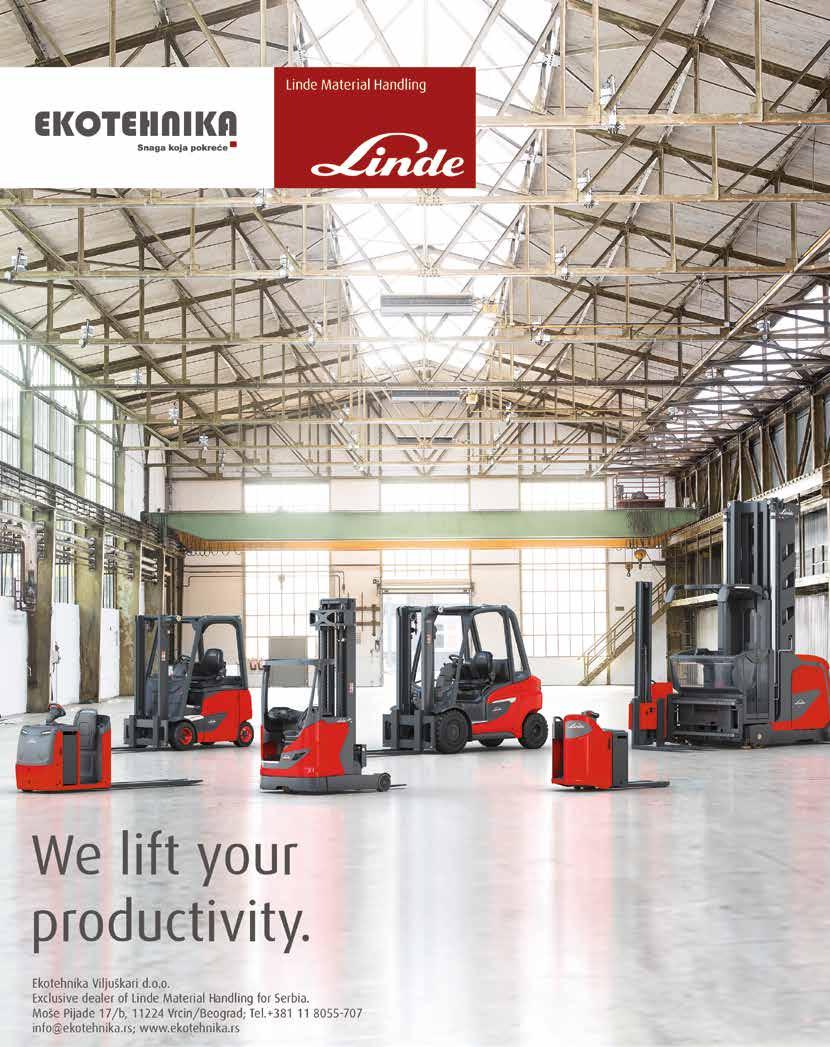
No Compromise on Quality
Vekol DMC, a pioneer of the business travel and events industry in Serbia, has maintained a market presence for almost a quarter of a century and has spent the past 20 years also cooperating with German companies, including some of the corporate world’s biggest names
good enough for them, I don’t agree to compromise. I am more likely not to do an event than to accept to provide a service that’s below our standards.
Our interlocutor, who has even managed to gain the trust of the renowned Deutsche Telekom, explains that we can only entice foreign guests with quality and that we can only become a leader and a highly sought-after destination with the maximum commitment of all of us.
How would you describe the infancy of your agency, which is today a leader of the business travel and events industry in Serbia?
— When I launched the agency 25 years ago, the idea that guided me was to ensure that I w ould always provide the highest level of service, regardless of the circumstances, and present Serbia to my guests as an outstanding destination. My cooperation with German companies has endured for almost 20 years, from the moment Vekol profiled itself as a destination management company. Our German partners sought high quality and precision from us, and provided us with security and respected their contractual obligations. German clients are indeed demanding, but they’re simultaneously very easy to work with, due to their precision in their requirements.
You have an impressive portfolio with hundreds of clients, including Deutsche Telekom, Bayern Munich, STADA... How did you gain their trust?
— Bringing Deutsche Telekom here in 2011 was the most difficult job. Serbia still didn’t have developed tourism infrastructure back then, the DMC [Destination Management Company] cate-

gory of agency wasn’t even recognised on the market. On the flip side, we have Deutsche Telekom, with thousands of high-quality events under its belt and accustomed to the highest standards. We gained their trust, and later the trust of other agencies, through our determination and professionalism. I’ve never allowed us to offer anything of lower quality, even if a client seeks that or thinks, on the basis of comments online, that some space is better. In the case that I think a solution being sought by a client, on the basis of pictures or comments, is not
What will we receive with the construction of EXPO facilities, the new Fair, new hotels and infrastructure?
— Business tourism has incredible potential and brings much higher revenue than classic tourism. Business tourism also brings new opportunities for investment and new companies. The indirect impact of a well-organised event is unbelievable, because every foreign company seeks the possibility of investing in Serbia after experiencing a well-organised event. On the other hand, one poorly organised event can ruin all the state’s efforts to entice investors, because it is through the prism of the event that they see the culture and mentality of the people, the service, the milieu. They get acquainted with Serbia through the event, and if it is poorly organised, they don’t come back.
The EXPO and new tourism capacities will certainly help, but we must simultaneously work to promote the destination much more and better. Serbia still isn’t a destination that’s an easy sale to business tourists. At trade fairs one can still hear people ask ’please tell me something about the destination, I know nothing’. The advantages that we have over the neighbourhood – with our hotel infrastructure, airlines, level of service and hospitality – is always cancelled out by poor destination marketing. And, of course, the entire chain of businesspeople who participate in the creation of a tourist product – from agencies, airport staff and civil servants, to restaurant waiters and hotel receptionists – must understand that it is only with quality that we can entice foreign guests.
34 GERMANY 2023
BUSINESS | TANJA BOGDANOV MANAGING PARTNER AND FOUNDER OF VEKOL DMC DESTINATION MANAGEMENT COMPANY DMC
Every foreign company seeks the possibility of investing in Serbia after experiencing a well-organised event
Europe is Conquered With Quality
Company 8. mart (8th March), which has existed for almost an entire century, has always aspired to develop and grow. With the introduction of new technologies, constantly raising the effectiveness and efficiency of its work has made it a durable company and a market leader
Apart from Germany, as its principal market, 8. mart has expanded its customer base to include respected business partners from France that are also among the leaders on the European market and should provide a strong impetus to the company’s further growth and development, while in the period ahead space will also be created to cooperate with partners from the UK.


You head a company that has existed for almost an entire century and is known for having one of the largest and most modern textile factories. How did you become an industry leader?
— As you note yourself – the company has existed for almost a century. And in order to succeed and persevere on the very demanding textile market, facing very strong competition, both domestically and at the European level, the company – together with all its employees –has gone through every transition process, adapting ourselves to the demands of the market, and thereby also to the demands of customers, whose expectations and sensibilities have also changed throughout all these years, while maintaining a focus on the segment in which we are the best and nurturing our own values.
We have always endeavoured to develop and grow, by introducing new technologies and constantly raising the efficiency and effectiveness of our work, which has
made us a durable company and a market leader. And our success is even greater if we consider how developed the textile industry of the former Yugoslavia was and how just a few of us are left and continuing to compete successfully on the demanding European markets.
I must also emphasise that the greatest contribution was provided by our employees, because we have always, and particularly today, been blessed with very committed and loyal employees, who have decades of experience at the company and are extremely well-acquainted with the textile industry, machines and materials, and who therefore provide the right foundations for the company’s further growth and development.
Your top quality has secured your presence in all major retail chains across Europe, and then in 2017 you integrated into the group of German holding companies. Has that strengthened your position on the European market?
— We are a 100% exporter, with all our goods exported to EU markets, so that
integration has definitely strengthened our position, primarily on the German market, where we have been cooperating very successfully with large retail chains for many years. Within the scope of the Holding company, there are companies that work to bring new customers and expand the portfolio with existing customers, while we – as a manufacturing company – can focus on product development being aligned with the highest quality requirements and customer expectations.
How important is it to analyse the market; and to follow trends, but also dictate them?
— The answer to the question of dictating trends is neither simple nor easy, and very often eludes even the boldest of companies, regardless of the branch of industry in question. However, we really devote a lot of attention to gauging the demands of the market, to the sensibilities of our customers, very meticulously monitoring previous trends in order to recognise some future demands. We propose innovative ways of overcoming certain challenges that we face, but also welcome suggestions when it comes to the use of new materials, which increasingly direct us towards recycled materials and ecologically sustainable product niches. By investing in new knitting machines, we are in a position to satisfy all customer demands, and each year we introduce new machines for testing, with which we strive to increase our efficiency and expand the portfolio of products that we can offer the market. Innovating, implementing new knowledge and investing in people are the keys to success.
cordmagazine.com 35
BUSINESS | DARKO BJELIĆ EMBA, CEO, 8. MART
We Construct, Create and Connect
The plant in Kruševac is the first development project in Serbia for a company that has vast experience in the production of wiring systems for the automotive industry
Serbia represents a key market for the further development and expansion of our business. We are currently conducting analyses and preparing for the extension of the factory, which should be implemented next year. That will bring us an additional 500 jobs, new technology and new knowhow, – explain the Kromberg & Schubert team.
Since arriving in Kruševac, Kromberg & Schubert has been dedicated to growing its production of wiring systems for the automotive industry, but also to increasing its number of employees. Are you satisfied with the implementation of plans?
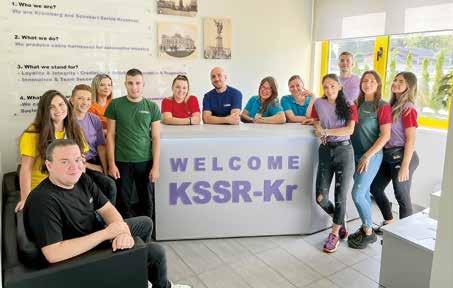
— We are extremely satisfied with the realisation of our plans. Our commitment to the goal has been key to us achieving results, but our “path” didn’t go in a straight line through all these years. We have learned and changed in order to become what we are today as a team and an organisation. We have changed a lot as a collective, having last year gone through a complete “rebranding” process, learning many lessons, exceeding our own limits, taking on many challenges... This all helped make us a stronger and more unified team. That’s why we today have 2,000 colleagues, two projects that we’re working on, in Porsche and Skoda, and we’re ready to continue growing and developing to become even better: as an employer, as craftsmen (wiring systems manufacturer) and as a better example for the community.
We believe that we’re on track and that we’ve already achieved significant success in realising our plans. However, we are al-
ways open to improvement and new ideas. We will continue dedicating ourselves to the growth and development of the company, with the support of our team and the community in which we operate.
In which direction will your company develop in Serbia?
— Our company already has a regional impact; we function as one team in three locations: Kruševac, Skopje and Bitola, under the leadership of commercial director Tanya Miliskovik and technical director Uwe Schillig. That’s a total of 10,000 people who are part of a single community. That also means that we always have someone to call on for help or someone to provide help, and that all serves to bring people together, to forge new friendships, affections, connections, which is a reward in and of itself.
How has the crisis caused by the pandemic and the war in Ukraine impacted the automotive industry and your operations?
— The crisis caused by the Covid-19 pandemic and the war in Ukraine has had a

significant impact on the automotive industry globally. Supply chain difficulties, reduced demand for vehicles and a general economic slowdown have led to falling production and turnover. Market uncertainties and fluctuations have also compelled us to adjust our business strategies.
All these crises have also brought new opportunities. Due to the situation in Ukraine, our headquarters requires additional production space, because it has new projects. Following the positive transformation that we had last year, we’ve now been entrusted, as a team, with that extension of space being built right here in Kruševac. In a world fraught with destruction, demolition and division at the global level, we are happy and grateful to have the opportunity to once again construct, create and connect. Our motto is: “Our people are our strongest side”. We will gain new colleagues and will promote those who’ve worked hard and contributed; we will learn a lot of new things, become humbler and more mature as individuals and as a team. We have plenty of all that waiting for us, and this all makes life more beautiful, richer and better.
36 GERMANY 2023
BUSINESS | TEAM KROMBERG & SCHUBERT SRBIJA D.O.O. KRUŠEVAC
A Full 34 Years at the Top
GP Gradjevinar, one of the first privately-owned construction companies in Serbia, has managed to survive despite sanctions, isolation, crises and competition, because its team believed in strict respect for deadlines, world standards and the individual needs of clients
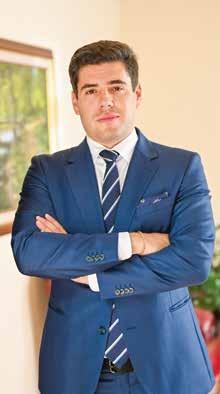
We’ve been led from the outset by the fact that clients and colleagues always recognise quality and professionalism, which is why those elements have always been present in every aspect of our business. That’s how it’s been for the past 34 years and how we will continue to work, – announces Nemanja Ćirić, business development manager at this famous construction company.
Gradjevinar was founded during one of the most difficult periods for our country. Does this make your unprecedented success even greater?
— Our company was founded in 1989, as one of the country’s first private construction companies. As you note, that was one of the most difficult periods for our country, and thus the initial development of the company was hampered even more. We’ve been led from the outset by the fact that clients and colleagues always recognise quality and professionalism, which is why those elements have always been present in every aspect of our business. That’s sometimes also surprising in our country, but we believe that such an approach – even after 34 years of successful operations and projects – is the only right way to build a serious company and brand.
You are known for respecting deadlines, applying the world’s highest standards and utilising cutting-edge technologies in construction. Is this how quality is preserved while simultaneously gaining an excellent reputation over decades?
— Precisely! All these factors form part of our aforementioned approach to work. In the construction industry, at least as we view it, quality isn’t only
reflected in well-executed works, but also in understanding the overall needs of clients and associates, and in incorporating them into the implementation of projects. Apart from strict respect for deadlines, this also implies constructing the most modern facilities in accordance with world standards and the individual needs of our clients. We always take a long-term view of our cooperation with clients, and we therefore don’t only construct buildings, but also partnerships that last for many years.
Does your cooperation with German companies and organisations, which often have standards that are even more stringent than those of Europe, require constant staff education and training?
— We often collaborate with both German and international companies and organisations, and their demands really are stringent, especially when you consider our significant participation in the implementation of a series of projects in the pharmaceutical industry. The very fact that our projects are extremely demanding, and that we are committed to providing top quality, ensures the need for constant education and training for all of us, as well as the development and application of the latest technical and technological solutions. Likewise, it is also evident that the aspects of green building are increasingly present and necessary in Serbia. That’s why our approach to project implementation –from initial design to final execution –includes the applying of solutions that adhere to the Green Agenda and provide long-term benefits to our clients, and that will not become outdated in just a few years.
cordmagazine.com 37
BUSINESS | NEMANJA ĆIRIĆ BUSINESS DEVELOPMENT MANAGER AT GP GRADJEVINAR
Our approach to project implementation – from initial design to final execution – includes the applying of solutions that adhere to the Green Agenda
Sustainable Mobility Experts
Yunex Traffic, as a global leader in intelligent transport systems (ITS), offers the broadest portfolio of solutions for adaptive traffic control and management systems, highway and tunnel automation, and intelligent solutions for V2X and road toll collection systems
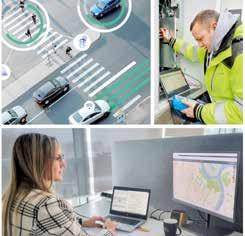
The innovative mobility ecosystems and services for smart cities that are developed by Yunex Traffic make traffic mobility safer, more efficient and more sustainable, with forward-looking infrastructure and transport solutions.
Yunex Traffic d.o.o. Belgrade was founded and developed under the scope of the capacities of company Siemens, characterised by the leading experience on the market and many years of experience with infrastructure projects, while it now operates independently as a leading innovator on the market. The company is currently implementing a contract with the Belgrade Secretariat for Transport to modernise around 400 traffic light intersections in the city of Belgrade that are included in the adaptive traffic control system.
Apart from improving travel times and increasing the capacity to handle traffic flows, an additional priority was secured for the public tram transportation system, reducing electricity consumption by 80%, and we also shouldn’t overlook the fact that, when it comes to pedestrian and cycling flows, significant advances have been achieved in terms of the safety of road users. This project is now in its final phase, and the Secretariat for Transport, which is tasked with managing and supervising the project, now has the ability to determine and update the parameters of the work of traffic lights and adapt them to real traffic loads, thereby contributing significantly to improving the city’s traffic situation.
Belgrade doesn’t lag behind the world
The City of Belgrade can today be proud that it has modern traffic lights and adaptive solutions like those of London,

Berlin, Vienna, Thessaloniki etc., which can be integrated into existing and future transport systems, such as the Belgrade Bypass ring road, highway network, public city transport or parking systems. An additional advantage of this kind of system is the fact that it can be adapted to sensitive groups, like the blind and visually impaired, or that it can completely transform public city transport or micro-mobility, depending on the development plan and strategy of the City of Belgrade.
The project’s next phase encompasses the modernisation of intersections in New Belgrade and their integration into the system, as well as giving priority to the number 16 bus line. Following implementation, we expect to reduce the travel time in a single direction by up to 20%, which will have a significant impact on improving the popularity of city transport services.
Precious global knowledge and experience
This is just one of the examples developed successfully by Yunex Traffic recently, in implementing its mission and vision of sustainable mobility: to make traffic greener and safer, and cities more liveable. We proudly note that, with the support of engineers from Germany, the Yunex Traffic team in Serbia, which comprises 50% women, uses state-ofthe-art equipment and next-generation software, and that it applies knowhow in the field of programming intelligent transport systems (ITS) and the smart city concept. We utilise global knowledge and experience in designing and creating platforms with modern and verified technologies in order to advance city transport infrastructure and overcome the challenges we currently face, while respecting valid IT and EU standards.
38 GERMANY 2023
BUSINESS | YUNEX TRAFFIC
The City of Belgrade can today be proud that it has modern traffic lights and adaptive solutions like those of London, Berlin, Vienna, Thessaloniki etc.
Combining Tradition and Innovation
Hoberg & Driesch, as one of Europe’s leading wholesalers of steel tubes, has always opted for quality throughout its 75-year history. And that was also
last year, when it established a new company with storage facilities
build-up their business here, so it is the right time and place.
According to Nenad Đorđević, H&D’s MD for Southeast Europe, this company has succeeded in creating very close and lasting relationships with its traditional customers, and is now starting to do the same in this region. The company now plans to improve its steel tubes processing capacities in the second phase of investment, especially in the automotive sector.
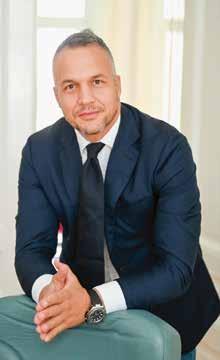
Hoberg & Driesch, which has existed for 75 years, has always prioritised the quality of its products and services, as well as customer satisfaction. Is that how you’ve become one of Europe’s leading wholesalers of steel tubes?
— That’s right, Hoberg & Driesch has always opted for quality throughout its entire history. Furthermore, as one of our core promises, we ensure delivery capability for a wide range of our products, and with it our customers’ own delivery and production commitments. This has provided the basis for us to create very close and long-lasting customer relationships, which we are now also starting to do in Southeast Europe.
How did Hoberg & Driesch end up launching operations in Serbia? Has it turned out that our country is a good place for German companies to do business?
— As part of our internationalisation strategy, we were seeking favourable lo-
cations in Southeast Europe. Given that Serbia is at the heart of the region’s metal processing industry, we considered it the right place to be located in the wider area. As a matter of fact, more companies have decided to come to Serbia to
Your company plans to improve its steel tubes processing capacities in the second phase of its investment, especially in the automotive sector. Do you find the current circumstances and economic environment favourable?
– The current overall economic environment is, of course, challenging, and the automotive sector is no exception. However, with the support of Hoberg & Driesch Processing, and by bringing into play its experience and reputation in the automotive sector, we are confident of developing a sustainable, enduring business locally. Furthermore, Serbia is already attracting more companies, thus providing more business opportunities for steel tubes processing in the near future.
You are operating as Hoberg & Driesch Southeast Europe, a new company that will distribute the famous H&D portfolio of steel tubes? Do you expect this new subsidiary to fortify your presence in Southeast Europe?
— Hoberg & Driesch currently has foreign branches in nine countries. All these branches strengthen our market presence in a natural way and enable close proximity to, and service for, our customers that would otherwise not be possible. Furthermore, local branches can respond in a special way to the specific local requirements and needs, thus providing an important contribution to achieving joint success with our customers. Hoberg & Driesch Southeast Europe will therefore certainly fortify and expand our presence with our products and services in the region.
cordmagazine.com 39
the case
BUSINESS | NENAD ĐORĐEVIĆ MANAGING DIRECTOR, HOBERG & DRIESCH SOUTHEAST EUROPE SOUTH EAST EUROPE SOUTH EAST EUROPE
Serbia is already attracting more companies, thus providing more business opportunities for steel tubes processing in the near future
Creating a Taste of Home
Dr.
For this CorD Magazine special edition, we discuss the habits and desires of customers, product range expansion, new products, environmental responsibility and the improvement of the company’s organisational culture with its MD, Sanjin Laganin, who has been with the company for more than a decade and at its helm for a year and a half, making him the perfect Dr. Oetker interlocutor.
Despite your products being closely associated with the warmth of home and traditional family values, you don’t overlook the needs of modern consumers. How did your “ready to eat” and “ready to prepare” product lines emerge?
— Customers are always in the focus of the operations of Dr. Oetker. We monitor the habits and expectations of consumers who have placed their trust in us for years and who recognise the high quality of Dr. Oetker products, thanks to which we know that there is ever more demand for products that are prepared quickly and easily. That’s why I’m proud to point out that we conceived our latest innovation, “Quick and Easy Polenta”, locally, from start to finish. This delicious meal, created without chemical processes or additives, takes just one minute to prepare, without cooking!
We also created Vitalis cereal bars. These tasty bars contain wholegrain cereals, which makes them an excellent source of fibre and a great source of energy.
We are actively working on the development of new products at our develop-
ment centre, so you can expect more new arrivals from the Dr. Oetker kitchen soon.
In the competition for profits and conquering new markets, we often forget that which is most important: people and nature. However, that is not the case with your company. Are you aware of your special responsibility?
— As a socially responsible and environmentally aware company, Dr. Oetker manages all of its processes in a way that ad-
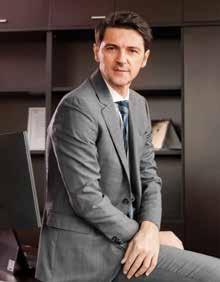

vances environmental protection. We are conscious of the special responsibility that we have towards people and nature. That’s why we launched the Sustainability Charter globally in 2020, which includes a total of 27 projects that are being implemented by our interdisciplinary, domestic and international teams. The goals are grouped into three segments: the food we produce; the world around us; and our company. That’s because we want to achieve climate neutrality, use fully recyclable packaging and switch to renewable energy sources. We will invest significant resources in improving the nutritional profiles of our products by reducing salt, sugar and fat content by up to 20%, while we also have the goal of reducing the amount of food waste by 25% by the end of 2025.
What are your priority plans for the years ahead?
— Advancing our organisational culture is one of the primary goals. We launched this process last year and will work on it continuously. For us, organisational culture equates the importance of what we do with the way we do it. It is essential for such an approach to doing business to change ourselves as individuals, to improve our leadership and communication skills. The transparency of the process, the inclusion of all stakeholders in the decision-making process, as well as meritocracy, serve to create a healthy working environment. These changes result in innovative products, good relations with customers and suppliers, and satisfied consumers.
Digitalisation is the next goal, and it implies the utilising of existing infrastructure and the improving of all processes in order for us to make the best possible decisions on the basis of the data we collect and the reports we compile.
40 GERMANY 2023
BUSINESS | SANJIN LAGANIN MANAGING DIRECTOR, DR. OETKER D.O.O.
Oetker is a company that has been nurturing tradition, family values and the warmth of home cooking for more than 130 years, while at the same time monitoring and serving the needs of the modern consumer. In its product creation process, this company has an unwavering commitment to do everything to satisfy the needs of consumers
For us, organisational culture equates the importance of what we do with the way we do it. It is essential for such an approach to doing business to improve our leadership and communication skills

Additional Salary Instalment for Staff
Company dm drogerie markt, which will commemorate 20 years of successful operations in Serbia next year, is continuing to set new standards on the labour market, with its relations towards customers and employees, and in terms of business as a whole
We want to thank every employee for their contribution to the development and advancement of the company on the Serbian market. They are responsible for the fact that our name is associated with responsible business, credibility, a top service and trust, – explain representatives of this leading drugstore chain.

As the leading drugstore chain operating in the country, dm drogerie markt is preparing to break all records as it enters its jubilee year of doing business in Serbia. To mark this occasion, the company has made a gesture that will be long remembered by providing its employees with the equivalent of as many as 15 monthly salary instalments or jubilee cash awards in 2023, which is a rare benefit in our country’s business community.
Each employee who has been working at dm for 20 years will receive one additional full salary, while all others will receive monetary awards that are proportionate to their length of service at the company, receiving a minimum of 25,000 dinars. Additionally, dm employees will also receive their regular 13th and 14th salary instalments in 2023 – a practice for which this company has been known since the launch of its operations in Serbia.
“With this gesture, we want to thank each employee for their responsible work, but also for their contribution to
the development and advancement of dm on the Serbian market. They deserve the credit for the fact that our company is associated with the epithets of responsible business, credibility, top service and trust. The image of our company, as one of the most beloved brands on the Serbian market, is reflected pre-

cisely in the relations that we nurture towards our employees, customers and the entire community. We hope that we will inspire the broader business milieu to make similar moves that will advance the economic development of the market as a whole, as we together enter the next 20 years of adventure and success,” announced dm drogerie markt Serbia and North Macedonia Director Alexandra Olivera Korichi.
This move forms part of dm’s comprehensive approach to its employees, who won’t only enjoy a record number of salary instalments, but will also continue to have access to numerous benefits, including competitive salaries, employee healthcare provided through free checkups, a “smart working” concept that provides the opportunity to work from home, professional training and education, as well as numerous activities for the children of employees.
42 GERMANY 2023 42
BUSINESS | dm drogerie markt
dm employees will receive their regular 13th and 14th salary instalments in 2023 – a practice for which this company has been known since the launch of its operations in Serbia
A Company Where Families Thrive
Our goal is to build an inclusive environment where everyone can shine, to help improve, prolong and create lives ~ Ina
Bulat.
Merck was the very first company, back in 1958, to bring a fertility product to market, while today it is a global market leader that has helped around five million babies be born. How much does this fact motivate you in your work?
— Merck has always been, and always will be, a family-oriented company. We help improve, prolong and create lives, and, for me, that is the greatest motivation of all.

Embodying our spirit of caring. We support our employees in fulfilling not only their professional aspirations, but also their personal ones. And that’s why we recently introduced to some markets our ‘Fertility Benefit’ programme, which will help our employees and their partners navigate the path to parenthood. And this project is, of course, built upon Merck Group’s longterm position as a true pioneer in fertility treatments.
In the last year alone, Merck has helped more than 94 million patients worldwide. Since you have a leadership role in the SEE region, what does that mean to you?
— Leading a team of hundreds of employees in Southeast Europe, and overperforming in terms of results, makes me feel inspired, confident and proud. It’s a pleasure to represent a wide spectrum of talents and capacities. Interactions with my teams fill me with tremendous energy, motivation, new ideas and fresh perspectives.
Our goal is to build an inclusive environment where everyone can shine; a place where you can feel everyone’s commitment, enthusiasm and passion. These are qualities that we can all honour and appreciate. And I think it is only by harnessing these talents that we can advance innovation and unlock the full power of our region.
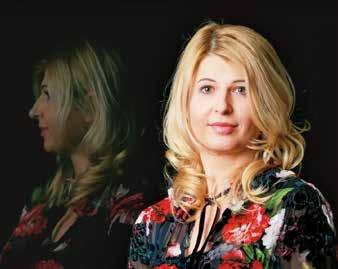
cordmagazine.com 43
BUSINESS | INA BULAT MANAGING DIRECTOR, HEAD OF SEE AT MERCK GROUP
Merck Group is a true pioneer in fertility treatments and a global market leader that has helped around five million babies be born
Can Germany’s
Economy
Avoid a China Shock?
The electric-vehicle revolution that propelled Chinese carmakers to global prominence is now threatening to render the German automotive sector obsolete. Unless policymakers act fast, Germany could soon face a painful deindustrialisation process similar to automotive the United States in the early 2000s
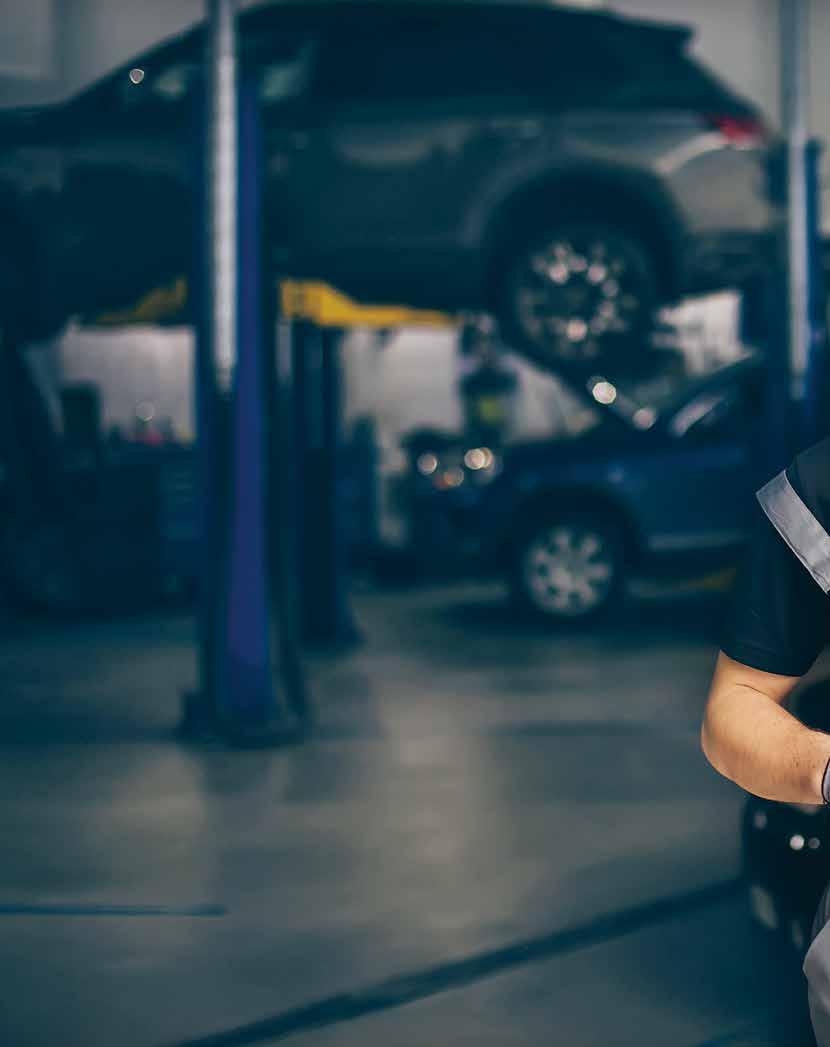
ECONOMY
The German and American auto industry executives attending this year’s Shanghai motor show may have expected to take a victory lap following their three-year pandemic-related absence. Instead, Western manufacturers were met with a harsh reality: dozens of new Chinese-made electric vehicles are coming for their market share.
Over the past few years, the rise of EVs has propelled the Chinese vehicle industry to global prominence. China’s auto exports already overtook Germany’s in 2022, following a 54% increase, and the country is projected to surpass Japan to become the world’s largest car exporter this year.
The shift was evident in Shanghai, where Chinese consumers ignored the offerings from BMW, Volkswagen and Mercedes in favour of new models from Chinese manufacturers BYD and Nio. Compared to the new Chinese cars, with their cutting-edge batteries and sensors, the German-made EVs seemed almost outmoded. For decades, German engineers perfected the internal combustion engine; now, the EV revolution is threatening to render all their technological knowhow obsolete.
Given that the auto sector accounts for 4% of German employment, the country could be facing a “China shock” comparable to the one experienced by the United States and other high-income countries experienced in the early 2000s. Following China’s 2001 entry into the World Trade Organization in, Western manufacturers faced fierce competition from Chinese firms, beginning with low-value-added products such as textiles, furniture and clothing, 2001 but then in more sophisticated industries like computers and electronics.
Between 2000 and 2010, Chinese-made goods’ share of total US imports increased by 25 percentage points, contributing to the deindustrialization of the Rust Belt and transforming America’s economy and politics. Contrary to trade economists' predictions, the contraction of import-competing sectors was not offset by an increase in exports to China. Moreover, displaced workers could not

45
Germany can and must take the lead in creating a European version of the US government’s Defense Advanced Research Projects Agency
easily find new employment, and those who did experienced reduced wages. The decline in manufacturing employment contributed to the increase in “deaths of despair” and set the stage for Donald Trump’s victory in the 2016 US presidential election, as the region most exposed to Chinese import competition underwent a rightward shift.
There are clear signs that Germany is already experiencing its own version of the China shock. Until last year, Germany was a net car exporter. Now, for the first time ever, it is importing more cars from China than it exports. From January to August 2022, Germany imported 1.8 million cars from China, but exported only 1.7 million. (A similar trend is apparent in the machine tools sector, where China’s exports have surpassed Germany’s.)
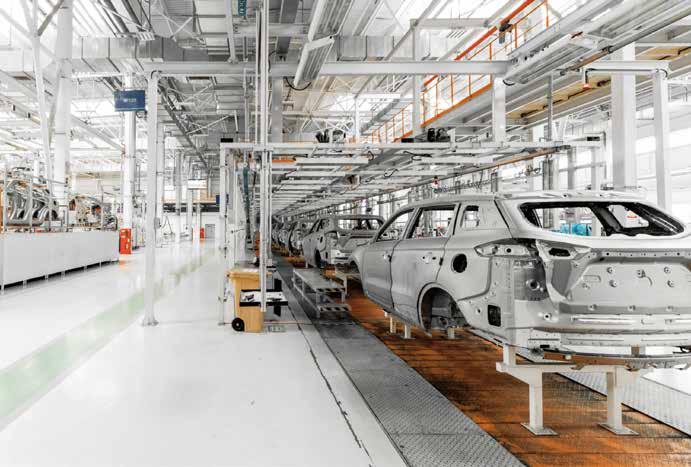
The irony is that China’s rapid industrialisation was facilitated by massive imports of Ger-
man machinery, particularly cars and machine tools, which are crucial to the German economy. Over the past three decades, Germany trained a generation of Chinese workers through joint ventures with Chinese companies. These technology transfers were mandated by China as a prerequisite to accessing its market. But now that China has become an industrial powerhouse in its own right, it has outgrown the need for Germany’s assistance.
China holds two significant advantages over Germany. First, at a time of technological disruption, past experience is irrelevant. China does not need to master the combustion engine to beat Germany in the EV market. Second, China’s size enables it to scale up production, expedite the learning process, and reduce costs swiftly. This is how China became a glob -
46 GERMANY 2023 46
Germany could also emulate China by forming joint ventures between domestic companies and Israeli artificial-intelligence start-ups. That would help Germany bridge the knowledge gap in AI technology
From January to August 2022, Germany imported 1.8 million cars from China, but exported only 1.7 million
al leader in lithium-ion batteries – and why it is now on the cusp of developing sodium-powered batteries.

In the past, several factors helped Germany avoid a China shock. Initially, Chinese imports competed with goods that Germany previously imported from low-wage countries like Turkey and Greece, resulting in job losses in those countries rather than in Germany. Similarly, the expansion of production networks to ex-communist Central and Eastern Europe enabled German firms to boost productivity and reduce costs. For years, Germany benefited from China’s economic boom, as Chinese demand for high-quality German cars and machinery soared.
But as China continues to expand its economic influence, Germany may no longer be able to avoid the negative impact that other countries have experienced. While the reconstruction of Ukraine could give the German economy a boost similar to the one it experienced following the fall of the Iron Curtain in 1989, the war there
must first end, which seems unlikely in the foreseeable future.
German policymakers could take several steps to avoid repeating America’s painful deindustrialisation process. They could seek to attract foreign direct investment from Chinese battery firms and Asian semiconductor manufacturers. Germany could also emulate China by forming joint ventures between domestic companies and Israeli artificial-intelligence start-ups. That would help Germany bridge the knowledge gap in AI technology, which will be crucial for autonomous cars, and enable German engineers to acquire the necessary skills to remain globally competitive.
Finally, Germany can and must take the lead in creating a European version of the US government’s Defense Advanced Research Projects Agency. By reverse engineering the Chinese approach to industrial policy and the US approach to innovation, Germany could boost economic dynamism at home and elsewhere in Europe, avoid the negative consequences of a China shock, and prepare its economy for the challenges of the 21st century.
By Dalia Marin, Professor of International Economics at the School of Management of the Technical University of Munich, is a research fellow at the Centre for Economic Policy Research and a non-resident fellow at Bruegel
cordmagazine.com 47
Given that the auto sector accounts for 4% of German employment, the country could be facing a “China shock” comparable to the one experienced by the United States and other high-income countries in the early 2000s
China’s auto exports already overtook Germany’s in 2022, following a 54% increase
Remembering Historical and Cultural Ties
This past spring, on 27 April, Serbian Ambassador to Germany Dr Snežana Janković opened an event at the famous Martin Luther University in HalleWittenberg, which is over 500 years old, with which the Serbian Embassy in Berlin commemorated two extremely significant anniversaries in the two countries bilateral relations: 240 years since the visit to this university of educator Dositej Obradović, Serbia’s first minister of education, and 200 years since the arrival in Germany of Serbian language reformer Vuk Stefanović Karadžić
This occasion was marked by the opening of an exhibition entitled ‘Vuk Stefanović Karadžić - Travels around Middle Germany’, which was created in cooperation between Martin Luther University Halle-Wittenberg (MLU), the Serbian Embassy in Berlin, Vuk’s Endowment and the Museum of Vuk and Dositej, and which ran until 9 July. The event also saw the MLU ceremonially presented with a bust of Dositej Obradović, representing a gift from the Serbian Academy of Sciences and Arts, which was presented on behalf of SANU by its vice president, academic Miodrag Marković. At the suggestion of the Serbian Embassy, the MLU entered the name of Dositej Obradović in the University’s permanent exhibition, thereby ranking him among the most important alumni since the founded on this renowned university.
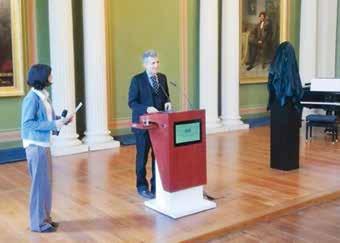
Addressing those gathered, Ambassador Janković emphasised that Serbs are still inspired today, two centuries on, by the visits of Dositej and Vuk to Germany, as well as by their collaborations with famous Germans like Goethe, Schiller, the Brothers Grimm, Ranke, Herder and others. She added that these historical visits also encourage us to work with even greater energy and enthusiasm to bring our peoples closer together and to strengthen cultural and educational cooperation between Serbia and Germany. Highlighting the central importance of Vuk and Dositej to Serbian culture and history as a whole, but also to the affirming of Serbian and South Slavic literature across Europe and around the world, Ambassador Janković pointed out that these two figures connect us over the course of centuries and remind us that our bilateral relations with Germany, which have often been confronted by difficult challenges throughout history, also contain such a wealth of contacts, mutual understanding a great desire to better mutually acquaint the two peoples and cultures.
Those gathered to celebrate these two iconic figures of Serbian literature and education in
48 GERMANY 2023
CULTURAL RELATIONS
Photos Credit: Serbian Embassy in Germany
Germany were addressed by MLU Rector Claudia Becker Ph.D., as well as by the authors of the exhibition: Slavic Studies Professor Katrin Schlund and University Archives director Professor Dirk Schaal. They stressed that this university has always been a gathering place for students from various countries, and that it is an honour for them that the MLU can also be proud of the fact that such important figures of Serbian culture have stayed there.
The exhibition featured a collection of Vuk’s personal items, manuscripts, letters and books, providing intimate insight into his life. Visitors explored the evolution of his ideas and his tireless efforts to promote Serbian culture and language. The artefacts on show served as a bridge between two rich cultural traditions, demonstrating the profound impact of cross-cultural exchange. Providing special value to this exhibition was the fact that it included archival documents, photographs, records and other exhibited artefacts that were made available by numerous German scientific and cultural institutions from the cities of Jena, Leipzig, Kassel, Weimar, Göttingen and elsewhere.
Among many visitors, this exceptional event was attended by officials of the City of Halle, professors and students of Slavic studies at the MLU, representatives of the broader academic and scientific community, representatives of cultural and educational institutions from Halle, as well as representatives of the Serbian diaspora from this city and the states of Saxony Anhalt and Saxony.


cordmagazine.com 49
Ambassador Janković pointed out that these two figures connect us over the course of centuries and remind us that our bilateral relations with Germany, which have often been confronted by difficult challenges throughout history, also contain a great wealth of contacts, mutual understanding and a desire to better mutually acquaint the two peoples and cultures
The Western Balkans in 2030 and Beyond
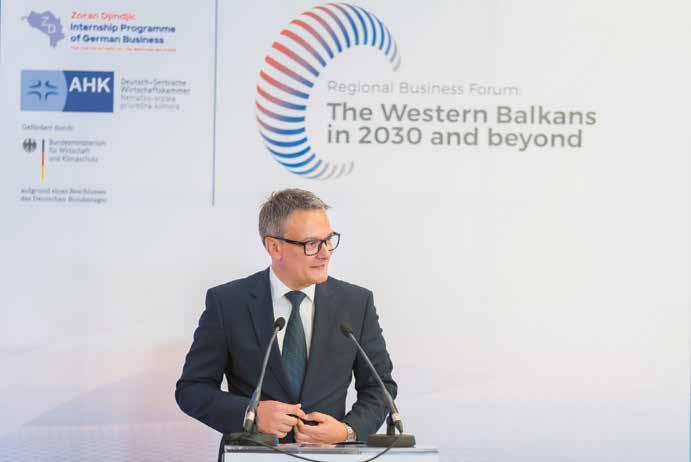
The most important achievement in Serbia by the year 2030 should be the establishment of a functional and competitive market economy, as a stable framework for the operations of domestic and international companies ~ Milan Grujić, President of the German-Serbian Chamber of Commerce
TThe German-Serbian Chamber of Commerce (AHK Serbia), in collaboration with the German Eastern Business Association, organised the Regional Business Forum “The Western Balkans in 2030 and beyond”. Held in Belgrade on 13th and 14th September 2023, the forum was implemented to commemorate the occasion of the 20th anniversary of the establishing of the Zoran Đinđić In-
ternship Programme of German Business.
The Regional Business Forum invited representatives from business, politics and civil society to participate in a joint time capsule, to take a closer look from the imagined perspective of 2030 at the economies, political perspectives, challenges and latest trends in the field of sustainability in the Western Balkans. In fastpaced, one-hour discussion rounds, dif-
ferent perspectives could be heard from the economic, political and civil society sectors, with a special focus on the topics of regional economic development, brain gain vs. brain drain, and the complexity of the Green Deal and associated essential reforms.
Speaking at the opening of the Regional Business Forum, AHK Serbia President Milan Grujić emphasised: “the most important achievement by
50 GERMANY 2023
BUSINESS | REGIONAL BUSINESS FORUM
the year 2030 should be the establishment of a functional and competitive market economy, as a stable framework for the operations of domestic and international companies. The Berlin Process certainly contributes to opportunities to unlock the economic potential of the region, while the most significant outcomes of this process for us entrepreneurs are the creation and use of a Multi-Annual Action Plan for the regional economic area and the project of establishing a
Common Regional Market. This should be based on the successful implementation of the Action Plan for the Common
Regional Market for the 2021-2024 period, which implies the implementation of various activities in four key areas: trade; investment; digitalisation; and industrial regional space.”
As German Eastern Business Association MD Michael Harms stated: “with today’s conference, which honours the 20th anniversary of our Zoran Đinđić Internship Programme for German Business, we aim to enhance the dialogue between politics, civil society and businesses from the perspective of the year 2030. With the huge potential the region provides, on one hand, and the current global challenges it faces, on the other, we believe that only a common approach among all stakeholders will overcome the current obstacles.”
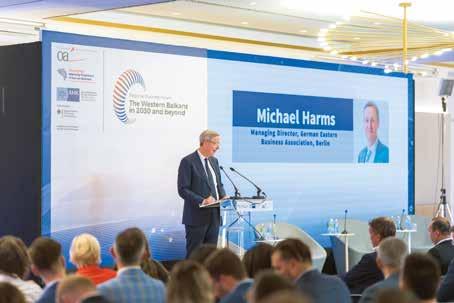
The formal opening of this forum was also attended by German Ambassador in Belgrade H.E. Anke Konrad and Serbian Minister of Domestic and Foreign Trade Tomislav Momirović.

cordmagazine.com 51
With this conference, which marks the 20th anniversary of our Zoran Đinđić German Business Internship Programme, we want to improve the dialogue between politics, civil society and business from the perspective of 2030 ~ Michael Harms
Gentlemen’s Agreement Gentlemen’s Agreement
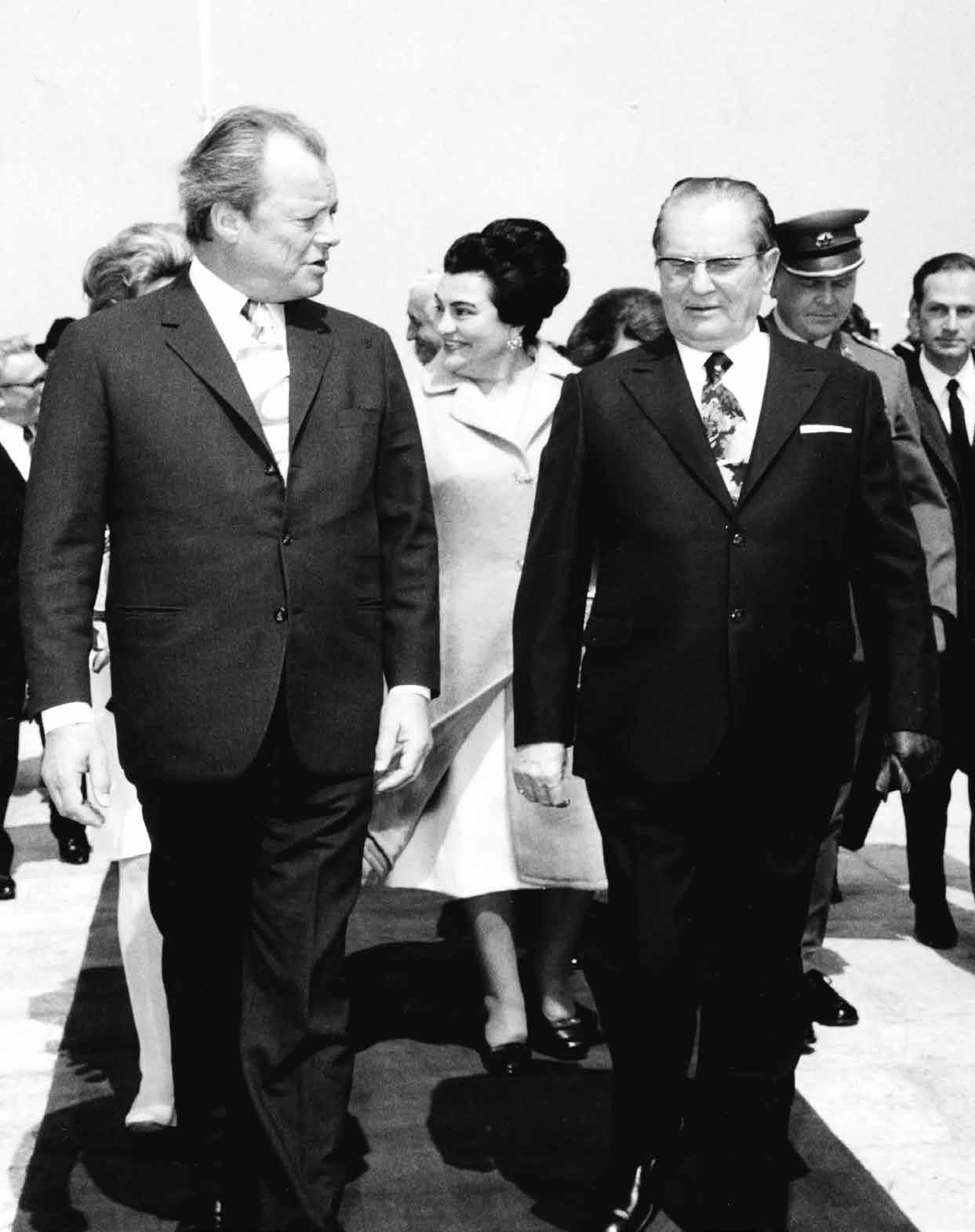
50TH ANNIVERSARY OF THE BRIONI MEETING OF TITO AND BRANDT
It was at 11:30am on the morning of 16th April 1973 that a plane carrying a West German delegation, led by Chancellor Willy Brandt, landed at Belgrade Airport. They were welcomed by a delegation of top representatives of the Yugoslav government, an honorary company of the Yugoslav People’s Army, together with a flag and a military band that performed the anthems of the two countries
By Natalija Dimić Lompar Photos Museum of Yougoslavia
Willy Brandt was the first chancellor of the then Federal Republic of Germany, aka West Germany, to pay an official visit to the Yugoslav capital, arriving in Belgrade 28 years after the end of World War II. The visit, including an official part that lasted four days, encompassed talks in Belgrade, followed by a stay in the Brioni islands, where meetings and talks were held with Yugoslav President Josip Broz Tito. According to the recollections of Tito’s personal translator for German, Ivan Ivanji, Tito was “fond of that German”. According to the Memoirs of Willy Brandt himself, he appreciated the politics of the Yugoslav president, who was 20 years his senior.
This wasn’t Brandt’s first visit to Yugoslavia, nor was it his first meeting with its president. Over the preceding two and a half decades, Brandt had followed the development of Yugoslavia studiously. As a socialist and anti-fascist
tential model for the transformation of East German society. And so it was that Brandt first travelled to Yugoslavia in 1955, though the prevailing anti-communist sentiment in West Germany meant that the trip unfolded in almost total secrecy. During his stay in Yugoslavia, Brandt took an interest in the system of workers’ self-management, the “Yugoslav road to socialism” and the Yugoslav interpretation of Marxism. However, his subsequent trips to Yugoslavia, in the role of Minister of Foreign Affairs in 1968 and Federal Chancellor in 1973, had a different political weight and function.
by political and ideological orientation, a man formed in a social democratic milieu, with the experience of having lived in exile in Scandinavia during the period of Nazi rule and residing in Spain at the height of the civil war with the aim of supporting the doomed republic, Brandt became interested in Yugoslavia as a socialist experiment after the 1948 Tito-Stalin split and the Informbiro period. As a representative of the Social Democratic Party of Germany in West Berlin after World War II and later mayor of West Berlin (1957–1966), Brandt was interested in the development of Yugoslavia as a po-
The issue of German reunification had been a central political issue for both German states since their 1949 creation. The West German governments of Konrad Adenauer (1949–1963) and Ludwig Erhard (1963–1966), both representatives of the Christian Democratic Union, pursued a policy of gradual sovereignty through Western integration, in the belief that negotiations with the East could only be led from a position of strength. They led a policy of non-recognition of the East German state, doctrinally defined in the so-called Hallstein Doctrine. According to it, recognition of the German Democratic Republic, aka East Germany, by third countries would be considered by the Government in Bonn as a “hostile act”. And Yugoslavia, which since the early 1950s had only maintained diplomatic relations with the West German state, recognised East Berlin in 1957 and thus sacrificed its diplomatic relations with Bonn.
Brandt wasn’t the only representative of political life in West Germany who was strongly opposed to this political doctrine. He believed that the policy of strength and isolation would only lead to detachment between the Germans living to the east and west of the Elbe, with this policy aimed at German reunification only leading down a blind alley. The construction of the Berlin Wall was merely the physical manifestation of this state of affairs. As an alternative, Brandt proposed “change through rapprochement” (Wandel durch Annährung). His “poli-
cordmagazine.com 53
The new Bonn government demonstrated its readiness to accept the burden of responsibility for its own history, but also to lay foundations for the future. It was precisely in the context of the new Eastern policy that his 1973 visit to Yugoslavia was significant
Brioni welcome reception for Federal Republic of Germany
Chancellor Willy Brandt and his wife Rut Brandt
cy of small steps” (Politik der kleinen Schritte) was intended to render the Berlin Wall porous. He believed in the attractiveness of the West, that individual contacts – the “flow” of people and goods, and with them ideas – would inevitably influence internal change in the societies behind the “Iron Curtain”. It was in this context
that Brandt also saw the development of Yugoslavia as an example of the transformation of a socialist society through contact with the West. Brandt received a chance to at least partially implement his policy in 1966, when he was appointed minister of foreign affairs in the coalition government formed with the Christian

54 GERMANY 2023
Formal dinner in honour of Willy Brandt and his wife at the White Villa and the presenting of awards
Democratic Union. The so-called “new eastern policy” (Neue Ostpolitik) also led to the restoring of diplomatic relations between West Germany and Yugoslavia in January 1968.
However, while previous years had seen Bonn take only timid tiptoe steps towards rapprochement with the East, Brandt’s 1969 arrival in the position of chancellor marked a complete turnaround in West German foreign policy and German policy. The key result on this front was the signing of the so-called Eastern treaties (Ostverträge) with Moscow, Warsaw, East Berlin and Prague, with which the Government in Bonn ruled out any use of force and recognised the de facto existence of the German Democratic Republic and the Polish-German border on the Oder-Neisse line. Dropping to his knees in front of the Monument to the Ghetto Heroes in
were vital to the future of Germany, but also to the security of Yugoslavia. In Belgrade, Brandt was considered a man made of a different political cloth than Adenauer and his associates. It was noted that Brandt was an anti-fascist, which had special gravitas in the context of the complex negative legacy of Yugoslav-German relations and the ideological orientation of the Yugoslav authorities. Brandt’s arrival as head of West German diplomacy was welcomed with great optimism in Belgrade. This also explains Belgrade’s willingness to restore diplomatic relations with Bonn without any preconditions, in terms of demanding the resolving numerous bilateral issues accumulated over the preceding years. However, restoring relations was just the first step. Unresolved issues had yet to be remedied.
Warsaw and the whole watching world in 1970, Brandt made a symbolic gesture of repentance on behalf of the German people for the crimes of the Nazi regime. At the same time, his treaties with Eastern European countries testified to his decisiveness to lead a policy of compromise and the easing of tensions. In other words, the new Bonn government demonstrated its readiness to accept the burden of responsibility for its own history, but also to lay foundations for the future. It was precisely in the context of the new Eastern policy that his 1973 visit to Yugoslavia was significant.
There was undisguised fondness for the new West German chancellor in Yugoslavia. Over the course of the two decades preceding Brandt’s arrival at the helm of the government in Bonn, Yugoslav representatives in West Germany had maintained close contacts with social democratic leaders. Although Yugoslav communists and German social democrats had no ideological affiliations, they still managed to find common ground on issues that

While Yugoslavia could serve as a model of socialist transformation for Brandt the socialist and mayor, for Brandt the statesman, visiting Yugoslavia meant getting to grips with the extremely difficult legacy of German-Yugoslav relations. The central issue burdening relations was that of compensation for Yugoslavia’s victims of Nazi persecution. This issue represented a crucial obstacle in the rapprochement of Belgrade and Bonn for more than a decade. It had both economic and moral dimensions. During his talks with Tito in Brioni, the West German chancellor himself raised the issue of compensation, stressing that it was an open problem that needed to be discussed openly. Brandt emphasised that West Germany could no longer return to the past, while at the same time it couldn’t simply ignore its history or “sweep it under the rug”. The West German side offered capital assistance in the form of a loan totalling one billion Deutschemarks, and the Yugoslav side accepted to consider the issue closed with this indirect solution – albeit without explicitly mentioning compensation, so as not to set a precedent for other Eastern European countries.
During his time in Yugoslavia, Brandt also visited the National Library in Belgrade. In presenting a gift to the Library in the form of a consignment of replacement books for those that had perished in the German bombing of 6 th April, 1941, Brandt made a symbolic gesture of repentance on behalf of the German people for the devastation wrought during World War II. With the Brioni “Gentlemen’s Agreement” between Tito and Brandt, the two sides agreed to lay to rest open and painful problems from the past through a stake in the future, in the form of long-term arrangements to cooperate in various fields.
cordmagazine.com 55
During his talks with Tito in Brioni, the West German chancellor himself raised the issue of compensation, stressing that it was an open problem that needed to be discussed openly
Competing Unity in
As the Berlin Special Olympics drew to an end, organisers expressed hope that we are entering a new era of inclusivity
Abdulaziz Almubarak cheers after scoring a goal for Saudi Arabia during the men’s unified handball final rounds, played against Kenya, in the Horst-Korber Sports Center on June 20

SPECIAL OLYMPICS WORLD GAMES BERLIN 2023
Photo Christoph Soeder
Paul Kögler of Germany warms up for the golf competition, on the driving range at the Bad Saarow Golf Club in Brandenburg, Germany, on June 20, 2023
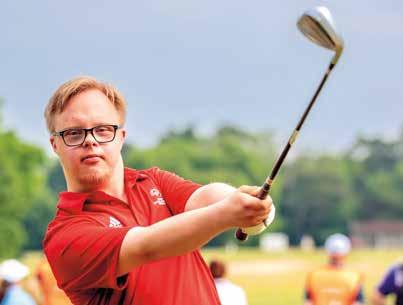
The 2023 Special Olympics World Games brought approximately 7,000 athletes from 170 countries to Berlin to compete in 26 sports this summer, with almost 20,000 volunteers working to ensure events ran smoothly. These athletes, representing individuals with intellectual disabilities, were vying for medals in events that included judo, powerlifting, badminton and bocce ball. Coordinated by the Special Olympics organisation, competitors were invited from dozens of national programmes (called SOs) to participate and be celebrated for their sporting achievements. As the organiser’s website explains: “The motto of the athletes of Special Olympics Germany is: ‘Nothing about us without us having a say.’”


57
Photo Alexander Hassenstein
Leo Heckel and Adrian Schlueter of Germany compete in the 1500-meter Unified Sports open-water swimming competition during day three, June 19, 2023, at Berlin’s Regattastrecke Grünau
Photo Andreas Gora


58 GERMANY 2023
PhotoJohn Macdougall Fireworks explode at the end of the opening ceremony of the Special Olympics World Games on June 17, 2023
Photo Alexander Hassenstein Nur Ameer Muqsiq Bin Baharuddin of Malaysia starts the 4-x-100-meter relay during the track-and-field competition on June 18, 2023
Competing representatives of each country brought water from their home nations to pour into a common pool in the middle of the stage, symbolically representing “Unity”, which is also the name of the Games’ heart-shaped mascot. Walking close to the back of the parade for the Opening Ceremony was the delegation from Ukraine, who entered the stadium to a standing ovation.
Sticking with the theme of the Opening Ceremony, Special Olympics Board Chairman Timothy Shriver accompanied the delegation from South Sudan, in a show of support to athletes from countries facing fragile sociopolitical climates. Speaking on stage, Mr Shriver celebrated the current moment when athletes, coach -
es, officials, volunteers and supporters could come together in the aftermath of a global pandemic and honour the spirit of the Games. He said at the time, “few things are more inhumane than humans being separated from oth
er human beings”.
German Chancellor Olaf Scholz also attending the opening of the Games and spoke of a peaceful, Olympic atmosphere. “This is a really great event,” Scholz continued. “It’s quite inspiring to see athletes take part here and how very committed and all-in they are.”
Germany hopes that the success of the 2023 Special Olympics will have an enduring impact and boost the country’s chances of hosting the 2036 Olympics and Paralympics.

cordmagazine.com 59
-
Photo Alexander Hassenstein Teresita Santander of Mexico reacts after competing in the 1500-meter Unified Sports open-water swimming competition on June 19, 2023
PACKED WITH PASSION
THE NEW GLC COUPÉ

Average fuel consumption: 5.1 – 5.8l/100 km, CO₂ emission (average) 135.0 - 152.0 g/km. Air pollutant emissions from traffic vastly contribute to overall air quality deterioration, especially in the case of above-average concentration of ground-level ozone, PM10 particles, PM2,5 particles and nitrogen-oxide. Stated figures represent determined „WLTP CO2 figures“ pursuant to Article 2, No. 3, of Implementing Regulation (EU) 2017/1153.
Fuel consumption figures have been calculated on this basis.





 By Ljubica Gojgić
By Ljubica Gojgić



































































